Quick link:
談談/谈谈、請讓一下/请让一下、小組/小组、向前、同伴兒/同伴儿、業餘/业余、畫畫/画画、精通、氣氛/气氛、活躍/活跃、踢足球、騎自行車/骑自行车、棒球、籃球/篮球、網球/网球、另外、游泳、將來/将来、書法/书法、隨便/随便、多才多藝/多才多艺、美式、東方/东方、專業/专业、原因、主修、彈鋼琴/弹钢琴、兄弟、圍棋/围棋、開始/开始、不敢當/不敢当
談談/谈谈 [tán.tán] VP. have a talk. 我想跟你談談/我想跟你谈谈。I want to talk to you.
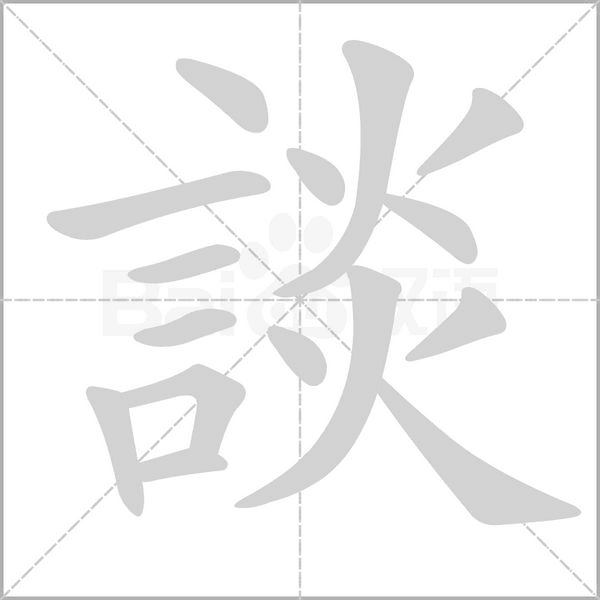
tán: talk
radical: 言 (yán, language)
Simplified character:
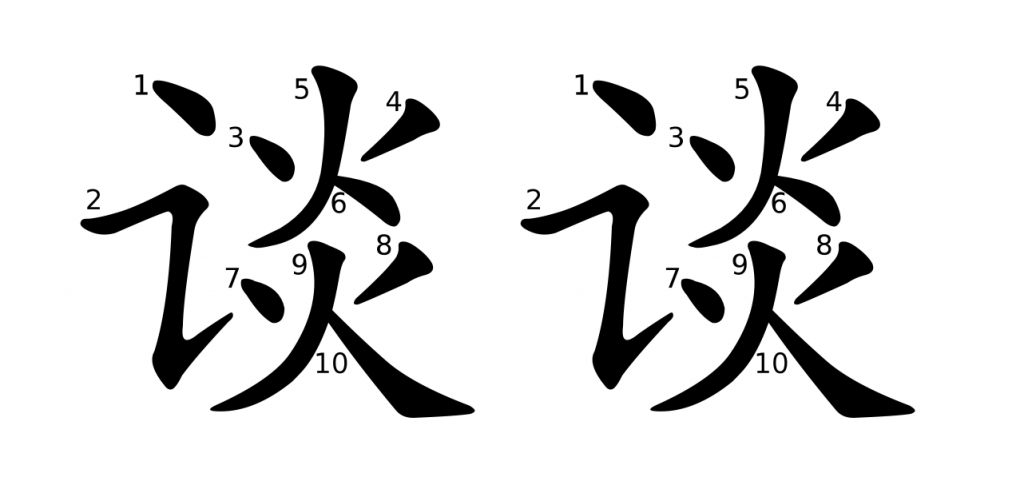
請讓一下/请让一下 [qǐng ràngyíxià] VP. please make way.
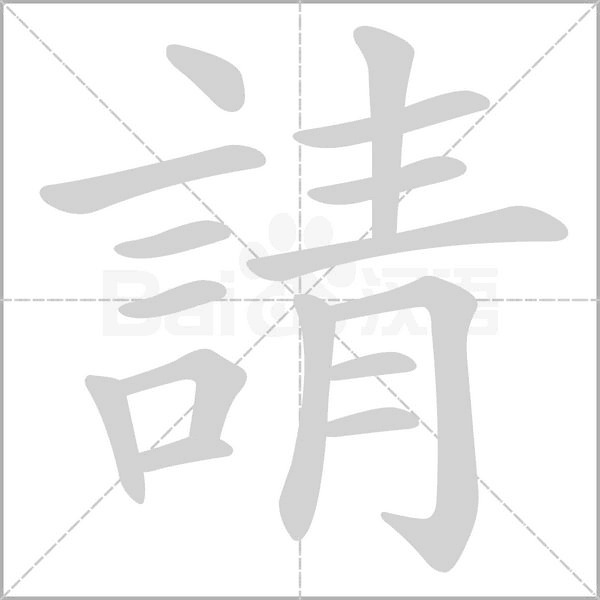
qǐng: (express a request)
radical: 言 (yán, language)
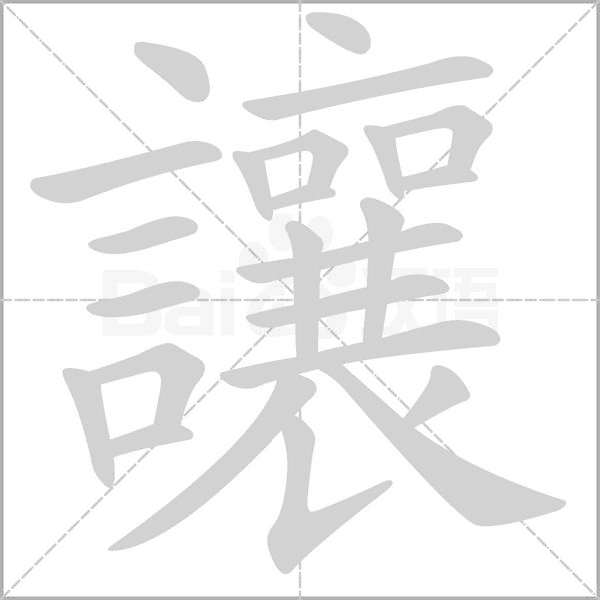
ràng: dodge
radical: 言 (yán, language)

yī
radical: 一
The combination of “一” and “下” is used to indicate doing an action once or trying to do it.
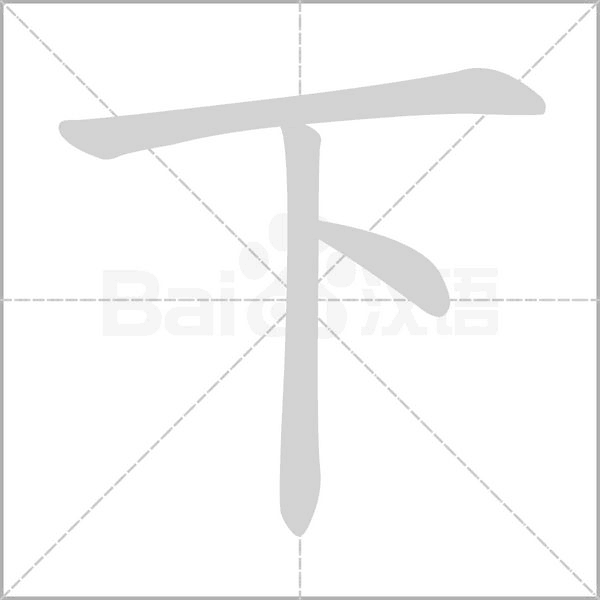
xià
radical: 下
The combination of “一” and “下” is used to indicate doing an action once or trying to do it.
Simplified character:

小組/小组 [xiǎozǔ] N. group. 現在小組討論/现在小组讨论。Now, let’s have a group discussion.

xiǎo: small
radical: 小

zǔ: group
radical: 糸 (silk)
Simplified character:
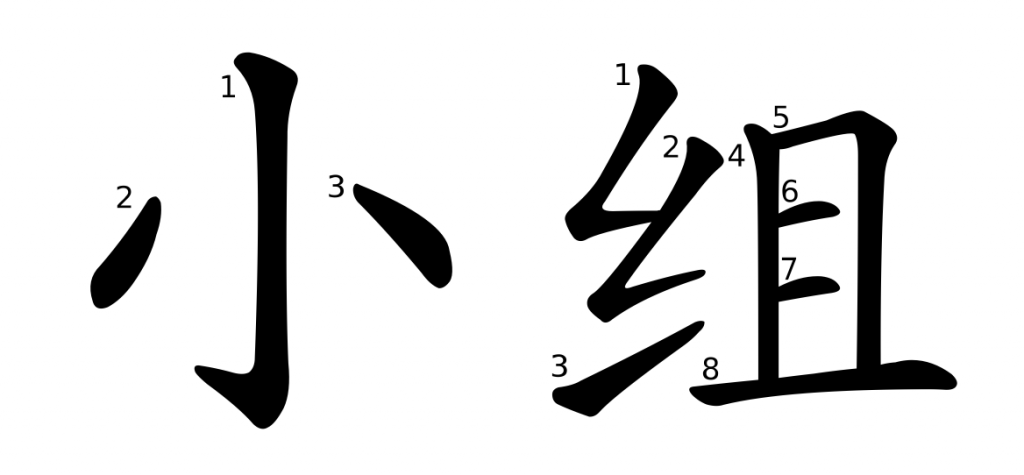
向前 [xiàngqián] Adv. forward. 要向前看。You should look forward.

xiàng:
radical: 口

qián: go forward [ahead]; front; ago
radical: 丷、刂
Both traditional and simplified characters are written as:
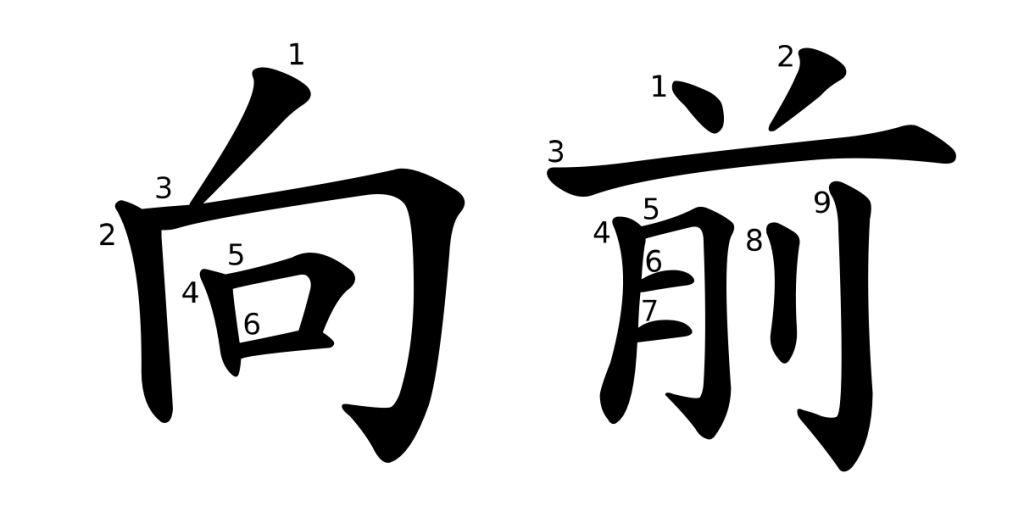
同伴兒/同伴儿 [tóngbànr] N. teammate. 請介紹一下你的同伴兒/请介绍一下你的同伴儿。Please introduce your companion.

tóng: together; in common; same; similar
radical: 冂、口
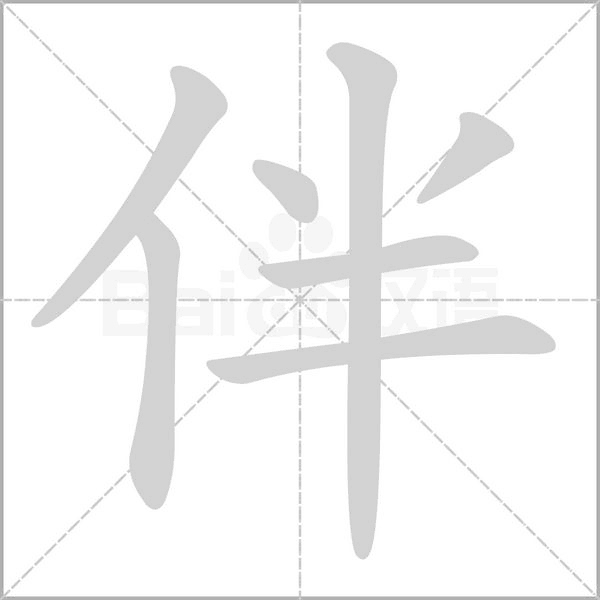
bàn: companion; partner
radical: 亻(person)
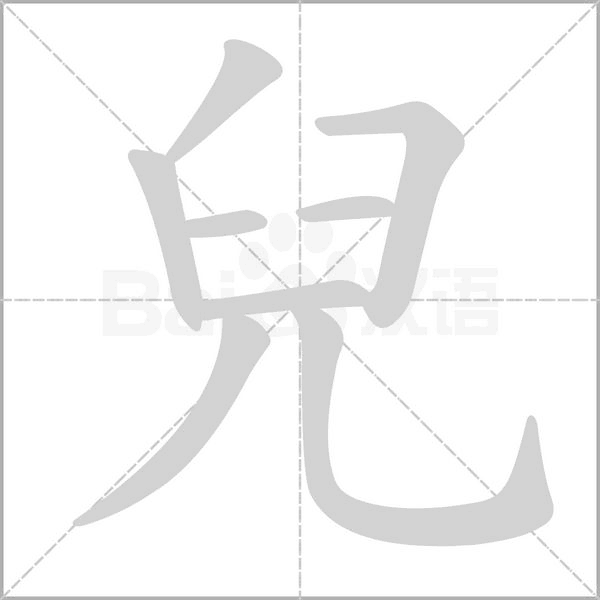
er: a retroflex suffix
radical: 兒
Note that “兒” is an important retroflex suffix in Mandarin Chinese. In Mandarin Chinese, “érhuà” (the addition of the retroflex suffix “-r”) can add a sense of intimacy or diminutiveness to nouns. However, this usage is limited to certain specific words. For example, “画儿” (huàr) conveys a more casual or affectionate tone than “画” (huà), and “玩儿” (wánr) sounds more colloquial than “玩” (wán). In addition, “érhuà” can also change the meaning of certain words. For example: “哪” (nǎ; which) becomes “哪儿” (nǎr; where), and “那” (nà; that) becomes “那儿” (nàr; there).
Simplified character:
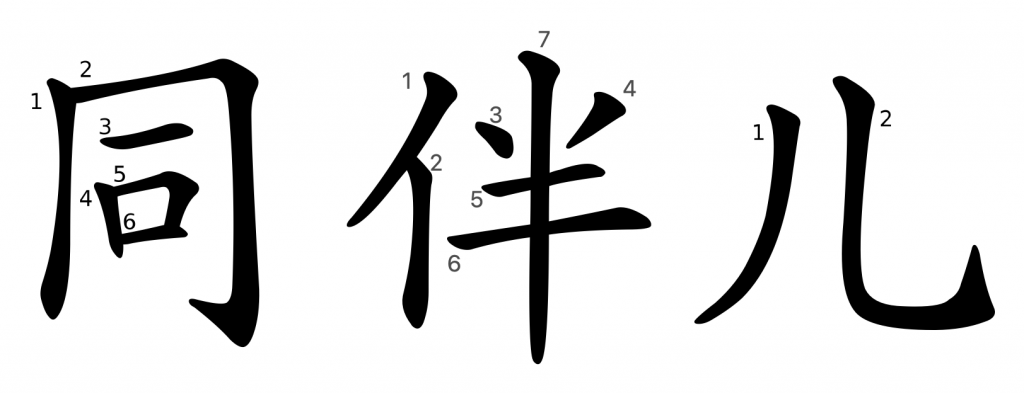
業餘/业余 [yèyú] spare time; amateur. 我的業餘愛好是看書/我的业余爱好是看书。My hobby is reading books.

yè: schoolwork
radical: 业

yú: leisure time
radical: 食 (shí: food)
Simplified character:
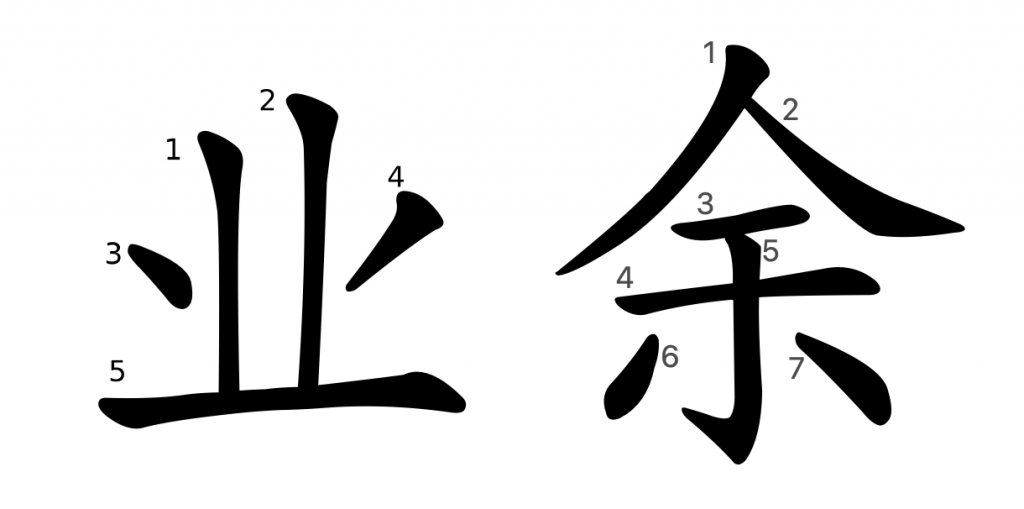
畫畫兒/画画儿 [huà huàr] V-O to draw/paint. 我畫畫兒畫得很好/我画画儿画得很好。I’m good at drawing.
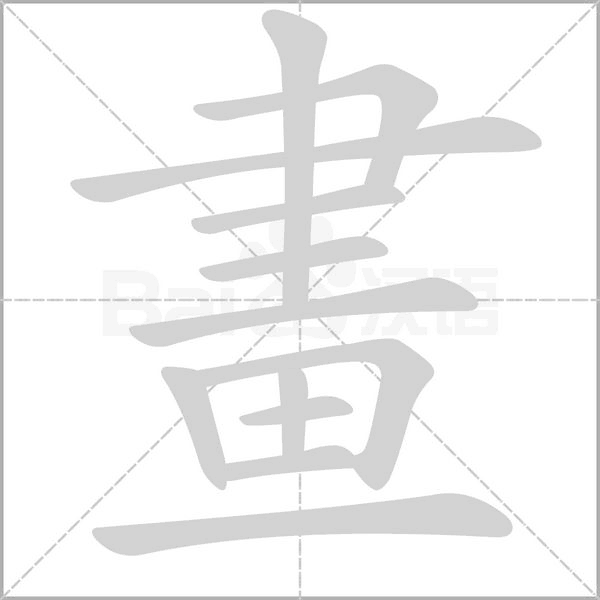
huà:
v. draw
n. picture
radical: 一、田

er: a retroflex suffix
radical: 兒
Note that “兒” is an important retroflex suffix in Mandarin Chinese. In Mandarin Chinese, “érhuà” (the addition of the retroflex suffix “-r”) can add a sense of intimacy or diminutiveness to nouns. However, this usage is limited to certain specific words. For example, “画儿” (huàr) conveys a more casual or affectionate tone than “画” (huà), and “玩儿” (wánr) sounds more colloquial than “玩” (wán). In addition, “érhuà” can also change the meaning of certain words. For example: “哪” (nǎ; which) becomes “哪儿” (nǎr; where), and “那” (nà; that) becomes “那儿” (nàr; there).
Simplified character:

精通 [jīngtōng] Adj. be proficient in. 我媽媽精通中文和英語/我妈妈精通中文和英语。My mom is proficient in Chinese and English.
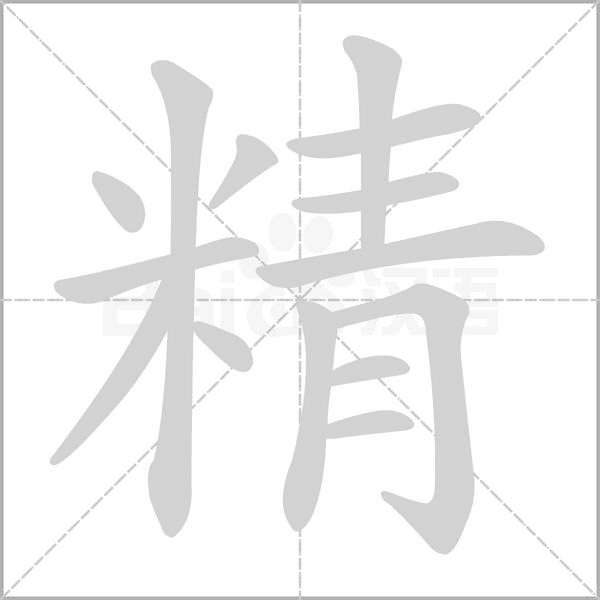
jīng: skilled
radical: 米
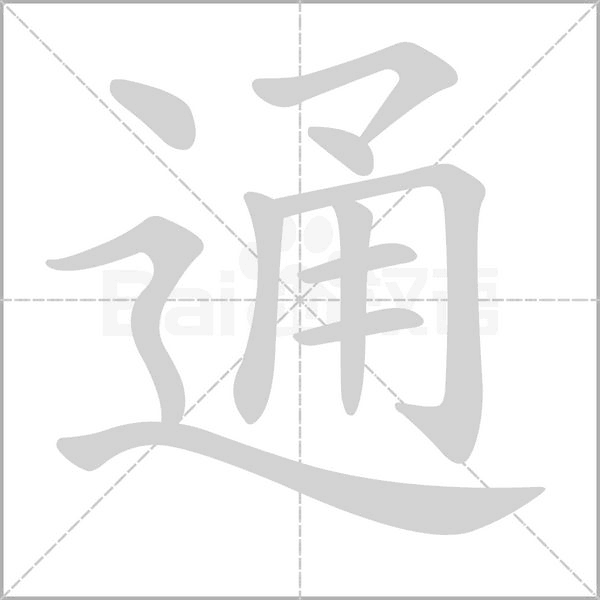
tōng: understand; master
radical: 辶
Both traditional and simplified characters are written as:
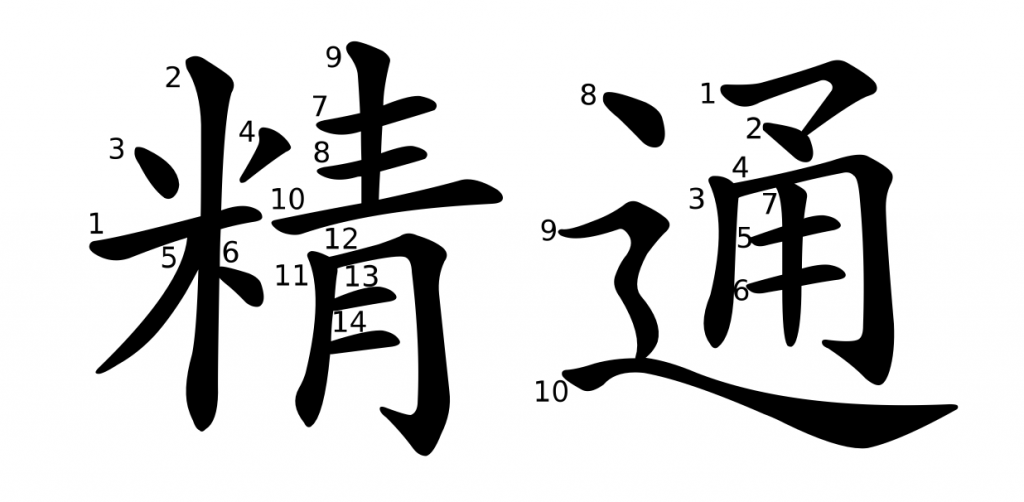
氣氛/气氛 [qì.fēn] N. atmosphere. 哥大的學習氣氛很好/哥大的学习气氛很好。Columbia has a great learning atmosphere.
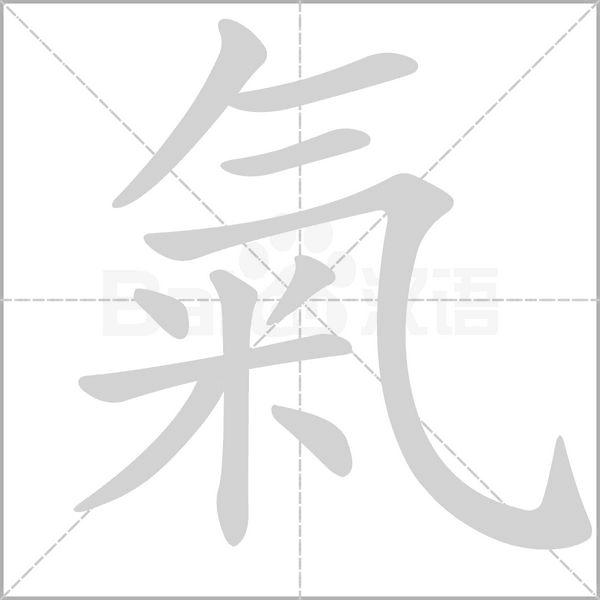
qì: gas; air; spirit
radical: 气
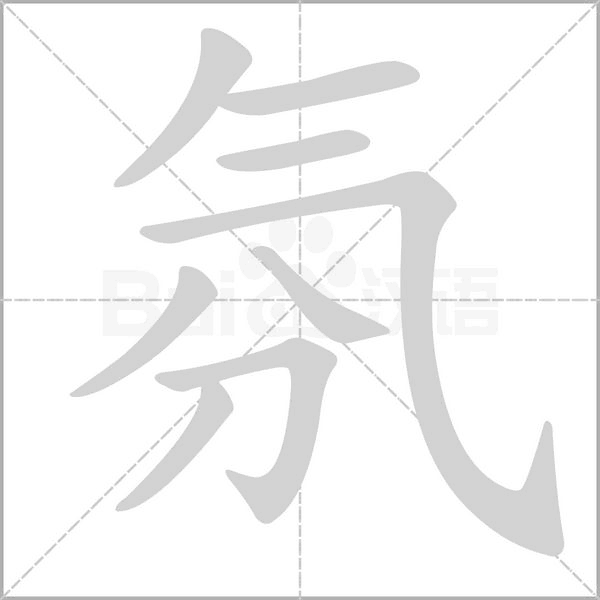
fēn: atmosphere
radical: 气
Simplified character:
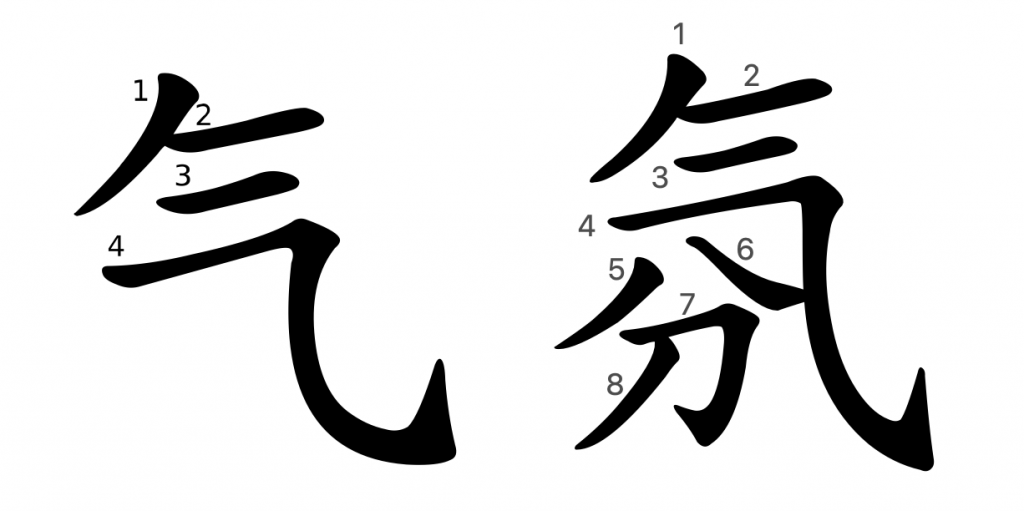
活躍/活跃 [huóyuè] Adj. active; lively. 派對上的氣氛很活躍/派对上的气氛很活跃。The atmosphere at the party is very lively.

huó: alive; living; vivid; lively; active; movable
radical: 氵(water)
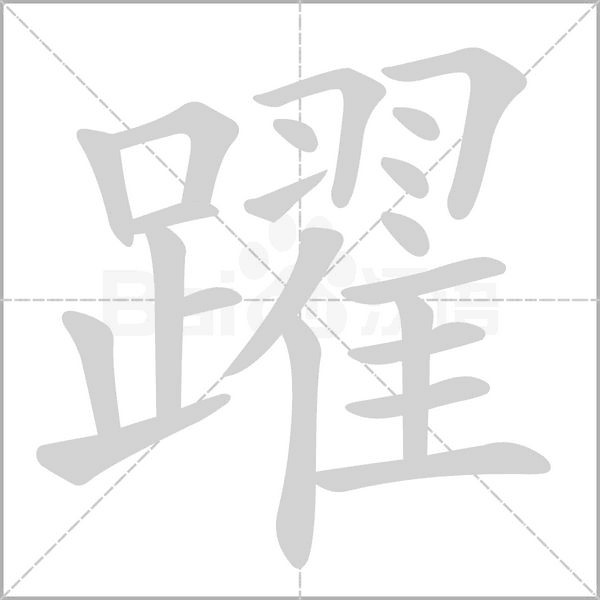
yuè: leap; jump
radical: 足 (zú: foot; leg)
Simplified character:
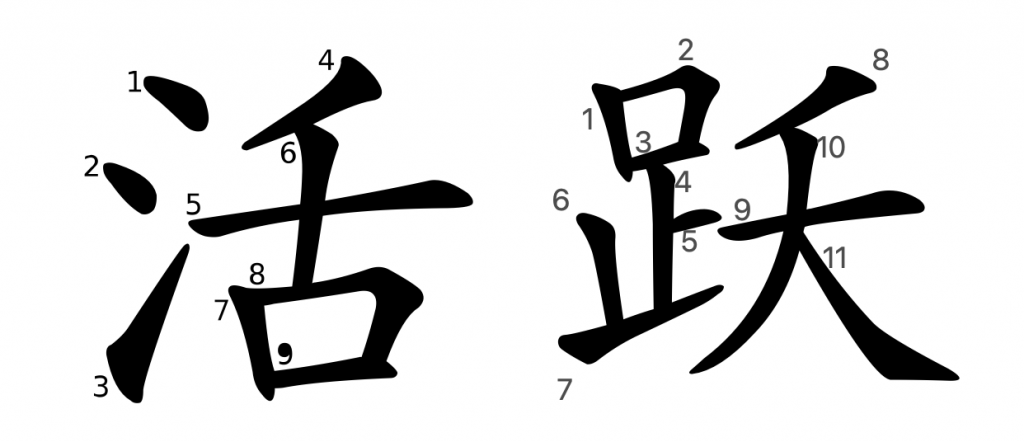
踢足球 [tī zúqiú] VP. play soccer. 我踢足球踢得不太好。I’m not very good at playing soccer.
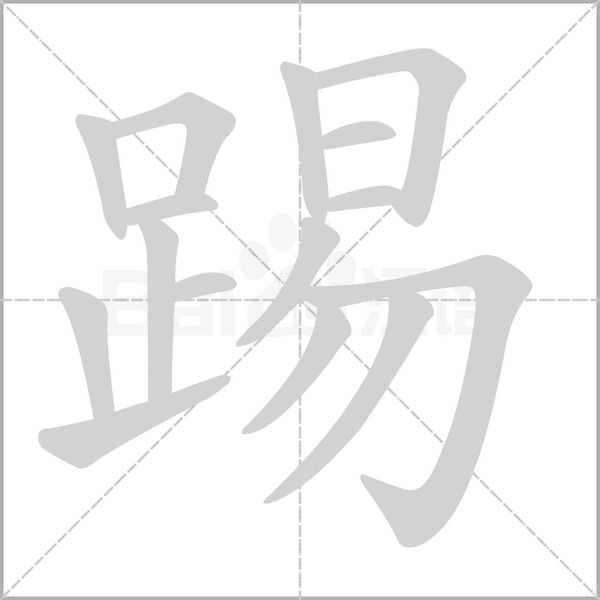
tī: kick
radical: 足 (zú: foot; leg)
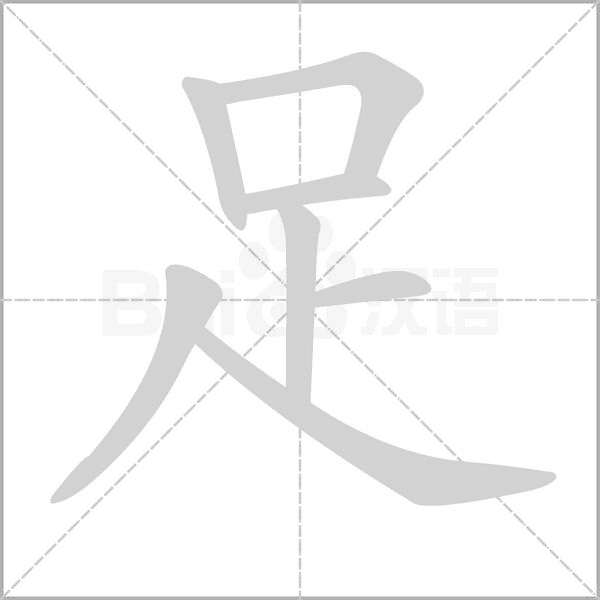
zú: foot
radical: 足 (zú: foot; leg)
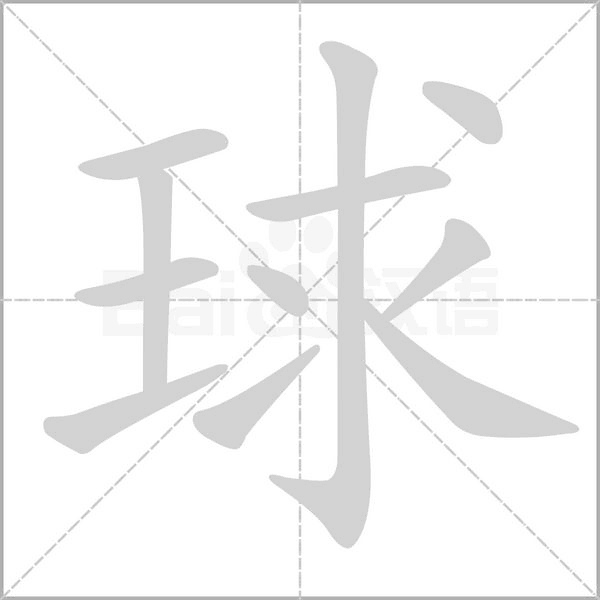
qiú: ball
radical: 王
Simplified character:
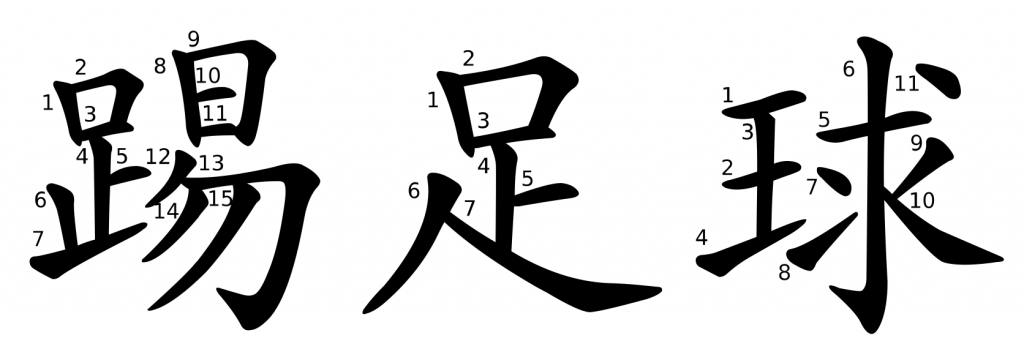
騎自行車/骑自行车 [qí zìxíngchē] VP. ride a bicycle. 我們要不要騎自行車去/我们要不要骑自行车去?Shall we ride bikes there?
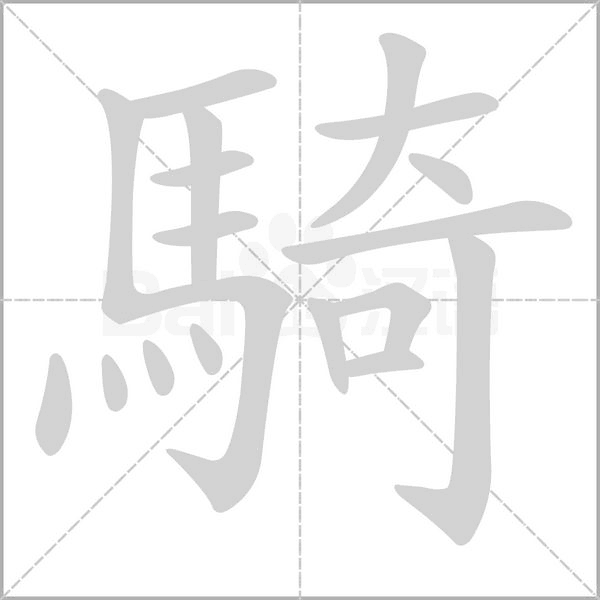
qí: ride
radical: 馬 (mǎ: horse)

zì: self
radical: 自
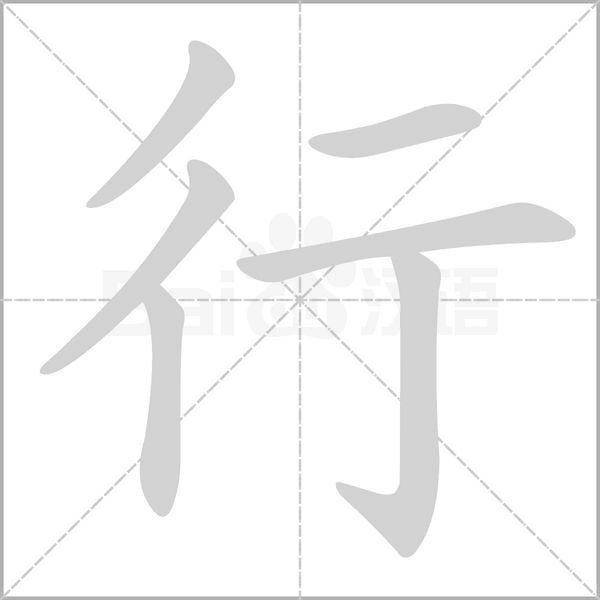
xíng: go
radical: 彳(chì: Take small steps slowly; Sometimes going and sometimes stopping)

chē: vehicle
radical: 車 (chē: vehicle)
Simplified character:

棒球 [bàngqiú] N. baseball. 很多美國人喜歡打棒球/很多美国人喜欢打棒球。Many Americans like to play baseball.
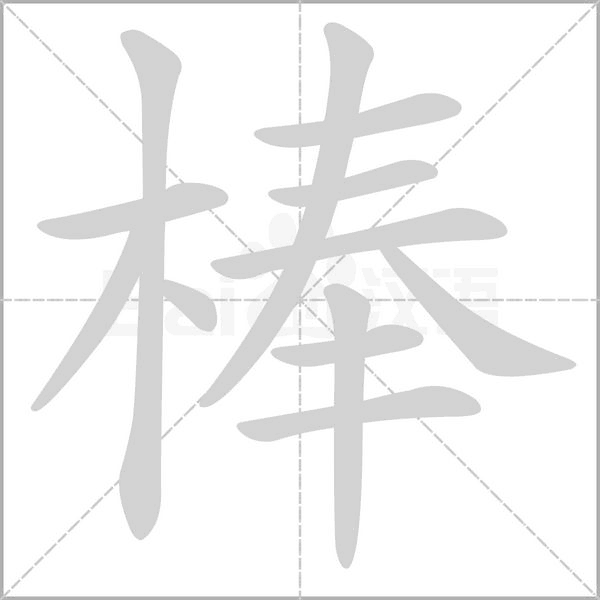
bàng: stick
radical: 木 (mù: wood)
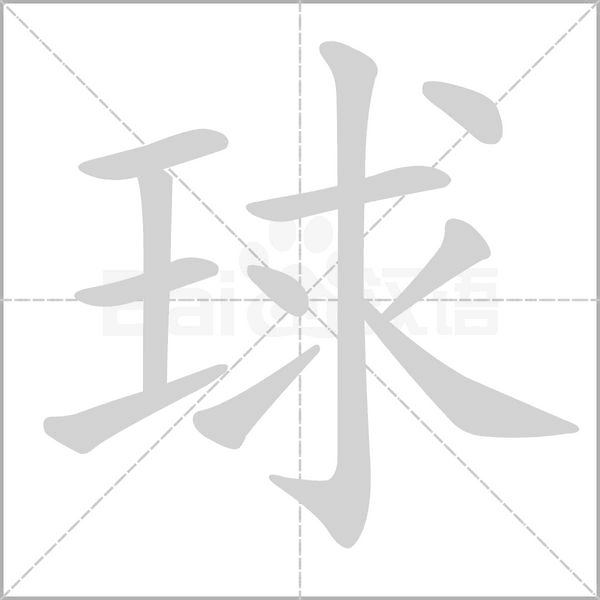
qiú: ball
radical: 王
Both traditional and simplified characters are written as:
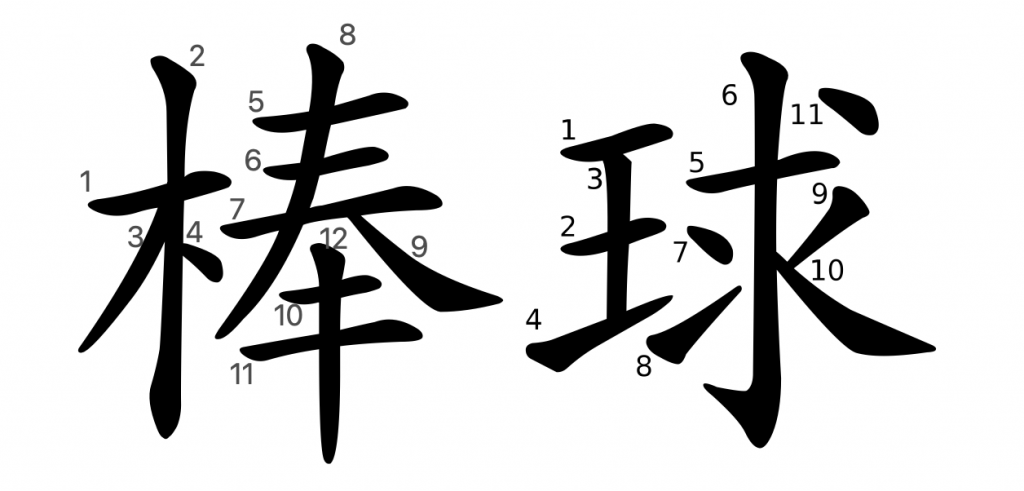
籃球/篮球 [lánqiú] N. basketball. 我打籃球打得不錯/我打篮球打得不错。I’m good at playing basketball.
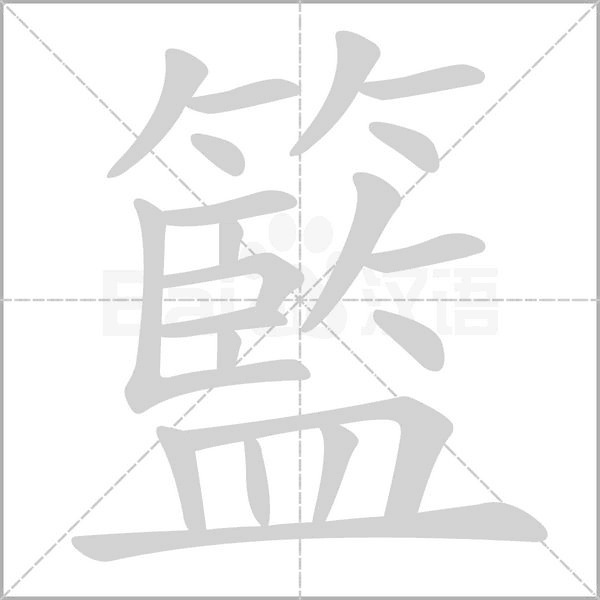
lán: basket
radical: 竹 (zhú: bamboo)
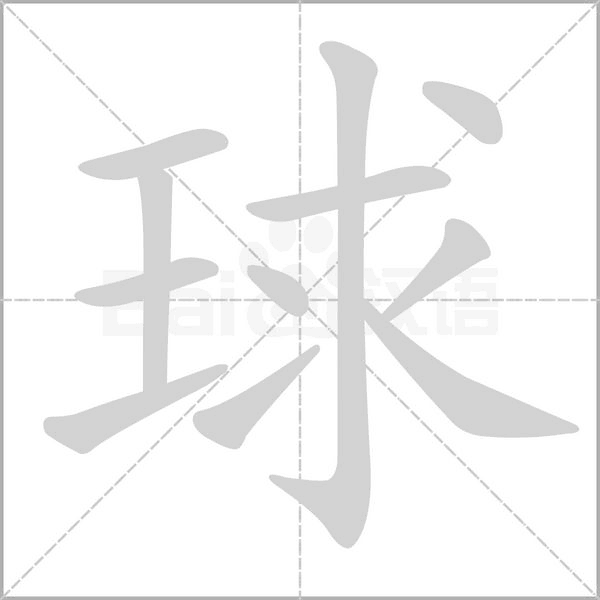
qiú: ball
radical: 王
Simplified character:
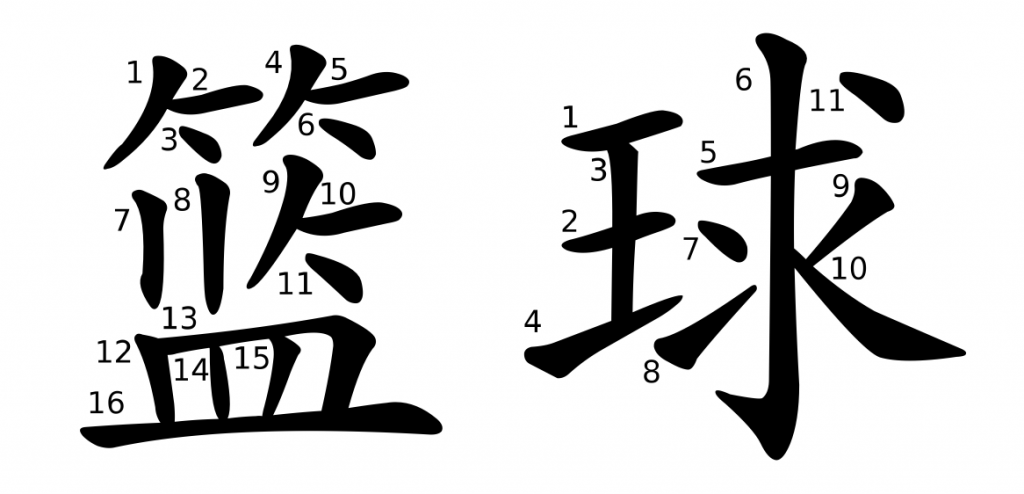
網球/网球 [wǎngqiú] N. tennis. 你想不想一起打網球/你想不想一起打网球?Do you want to play tennis together?
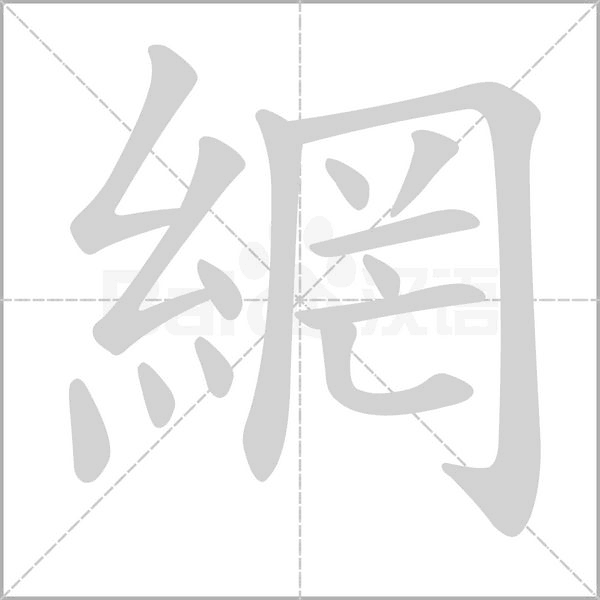
wǎng: net
radical: 糸 (sī: A bundle of silk)
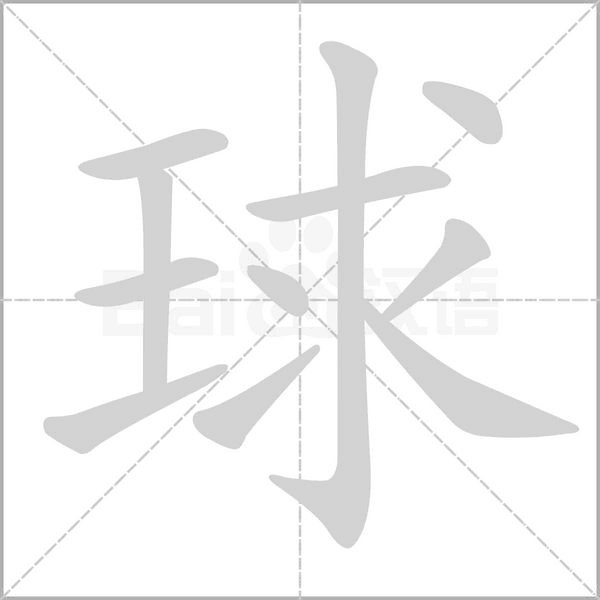
qiú: ball
radical: 王
Simplified character:
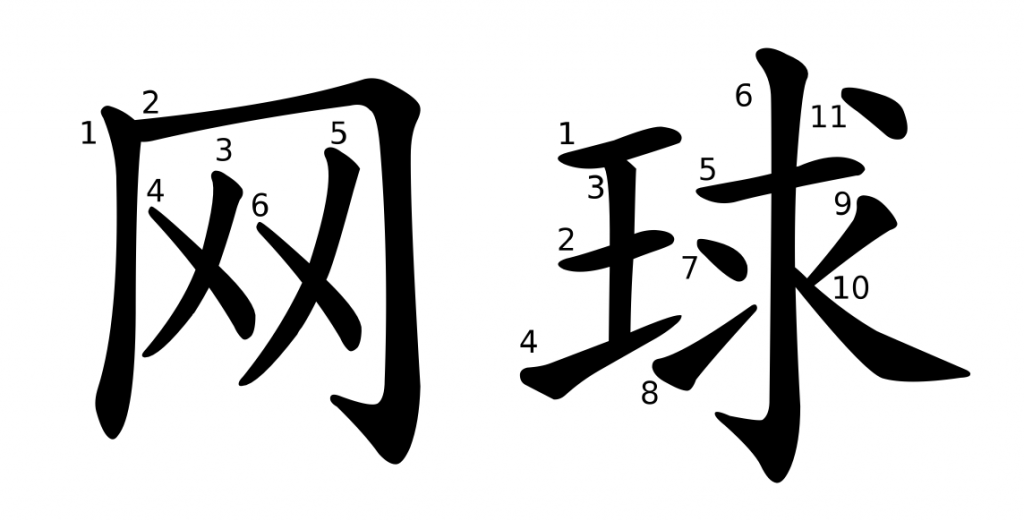
另外 [lìngwài] Conj. besides. 我喜歡打籃球,另外,我也喜歡書法和画画儿。/ 我喜欢打篮球,另外,我也喜欢书法和画画儿。I like playing basketball, and I also enjoy calligraphy and drawing.
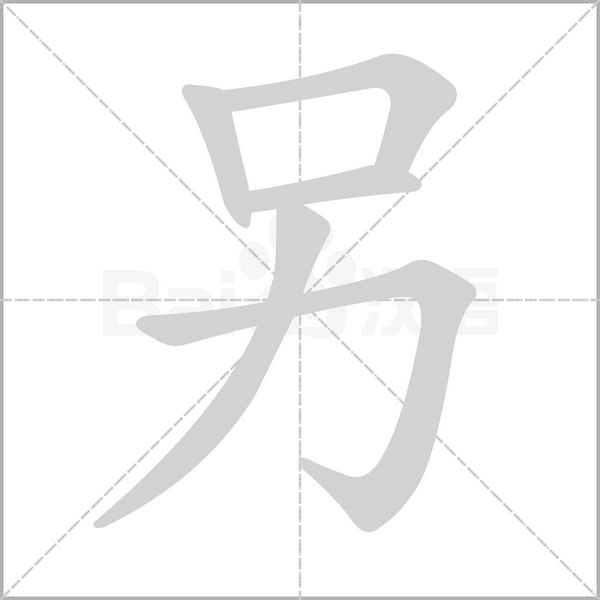
lìng: another; other
radical: 口
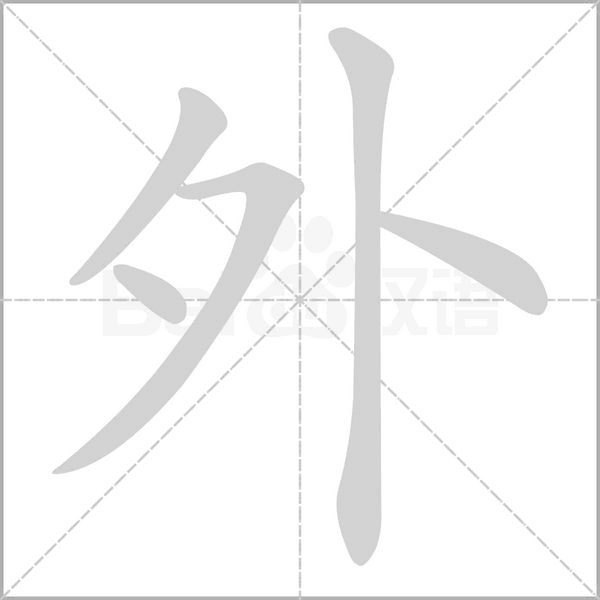
wài: outside; external side; besides; beyond; in addition
radical: 夕 (xī: evening)
Both traditional and simplified characters are written as:
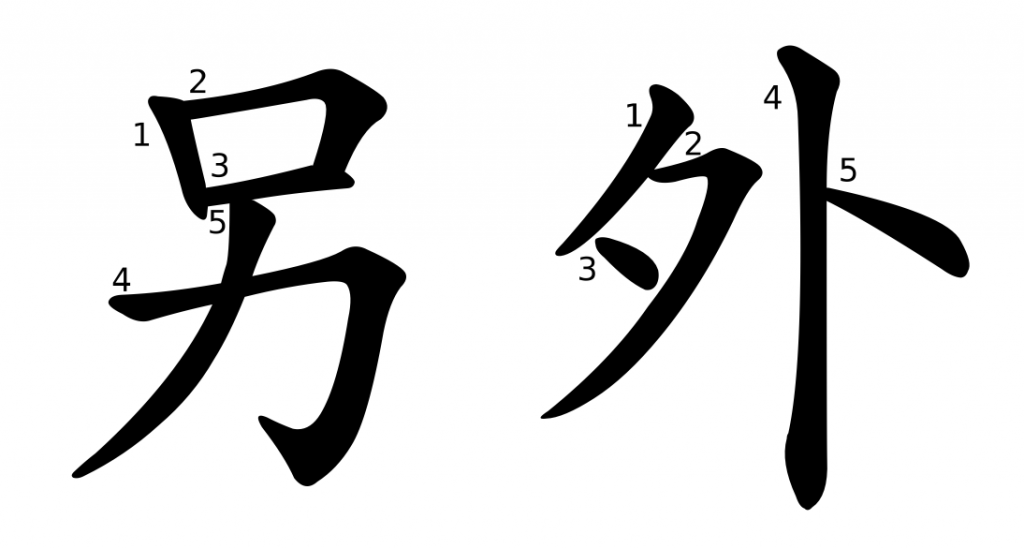
游泳 [yóuyǒng] V-O to swim. 我游泳游得不好。I’m not very good at swimming.
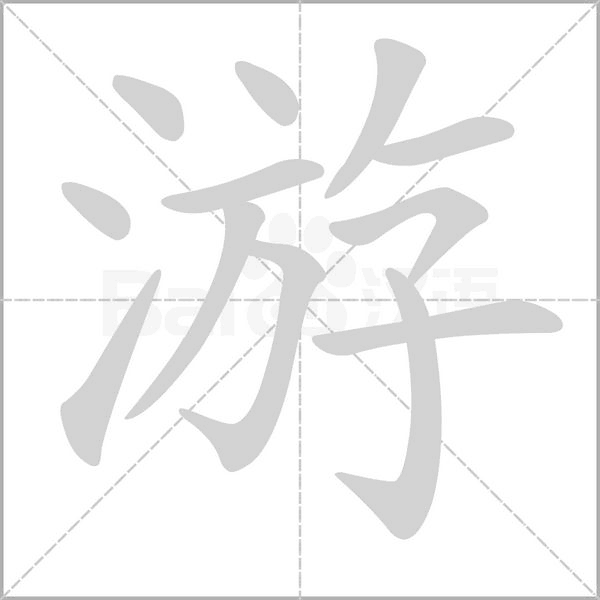
yóu: swim; wander
radical: 氵(water)
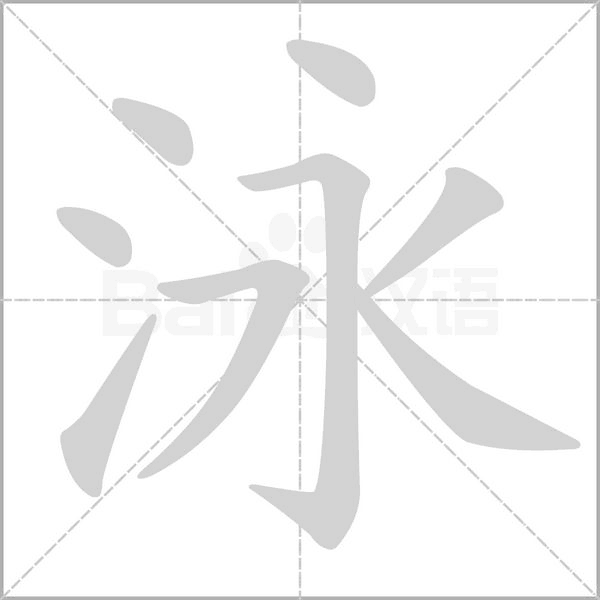
yǒng: swim
radical: 氵(water)
Both traditional and simplified characters are written as:
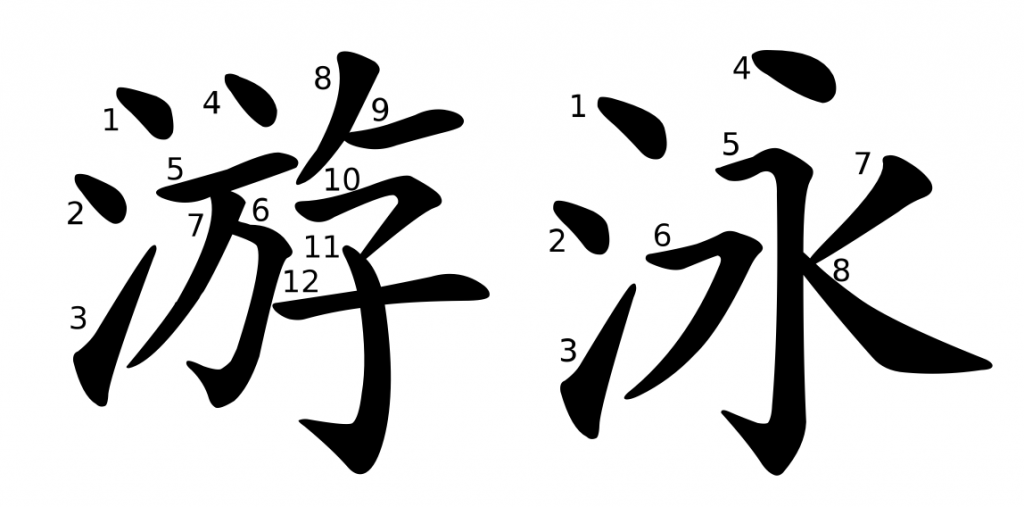
將來/将来 [jiānglái] TW. in the future. 將來,我想去中國工作。/ 将来,我想去中国工作。In the future, I want to work in China.
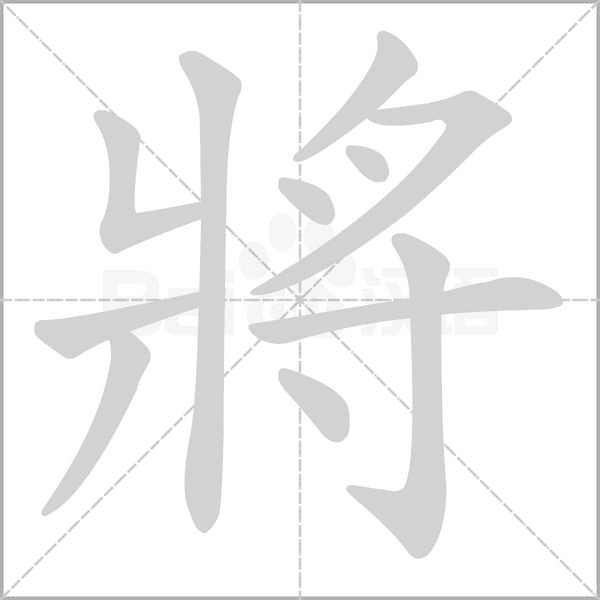
jiāng: be ready to
radical: 爿
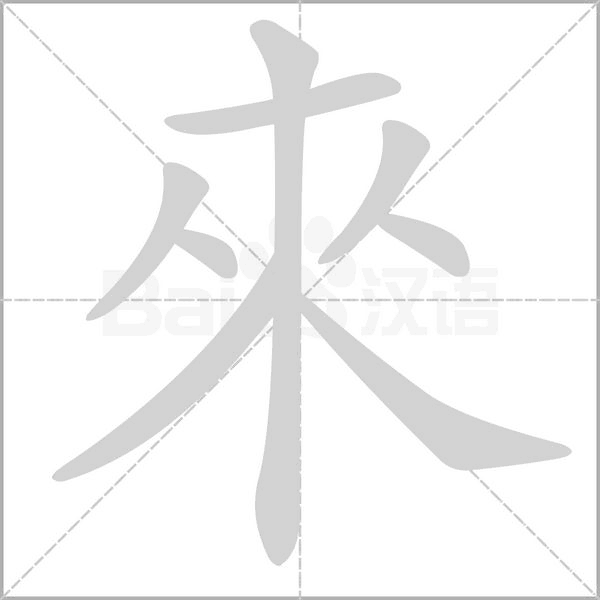
lái: come
radical: 木 (mù: wood)
Simplified character:
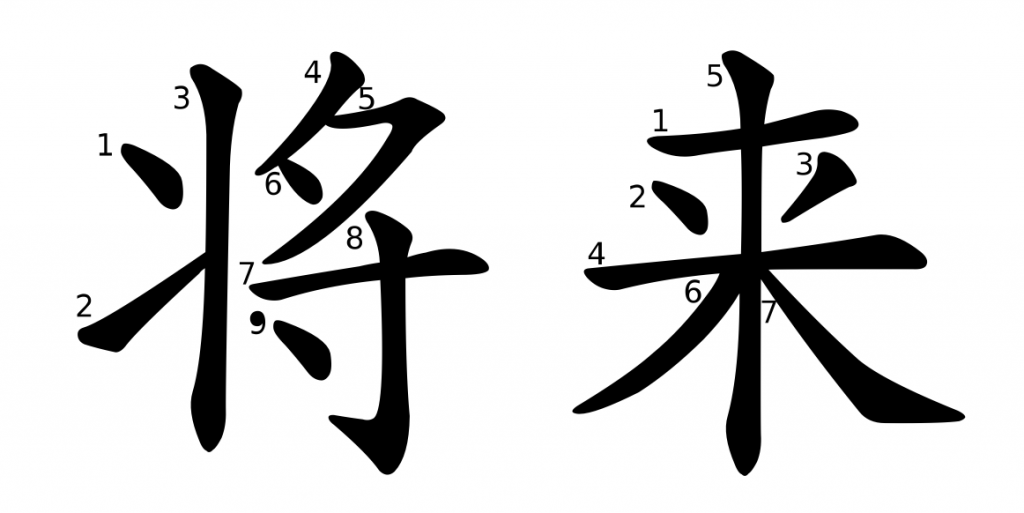
書法/书法 [shūfǎ] N. calligraphy. 你會不會書法/你会不会书法?Can you do calligraphy?
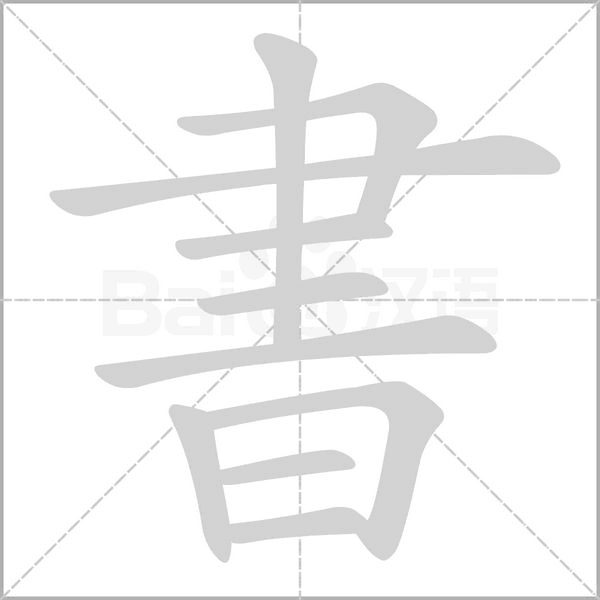
shū: write
radical: 乛
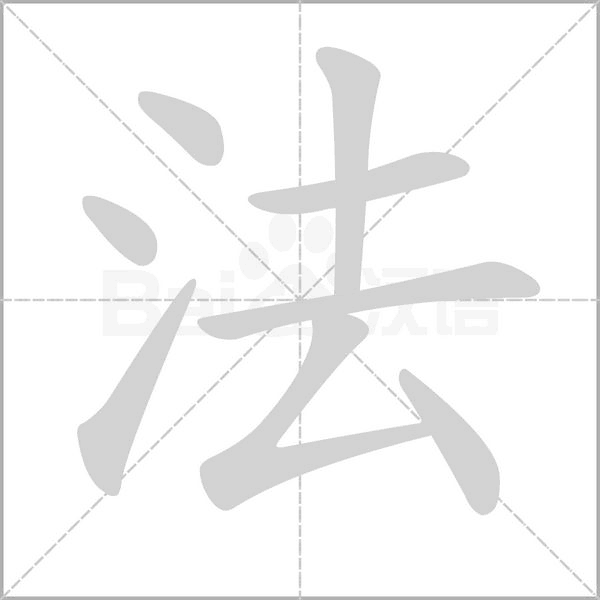
fǎ: law; way; method
radical: 氵(water)
Simplified character:
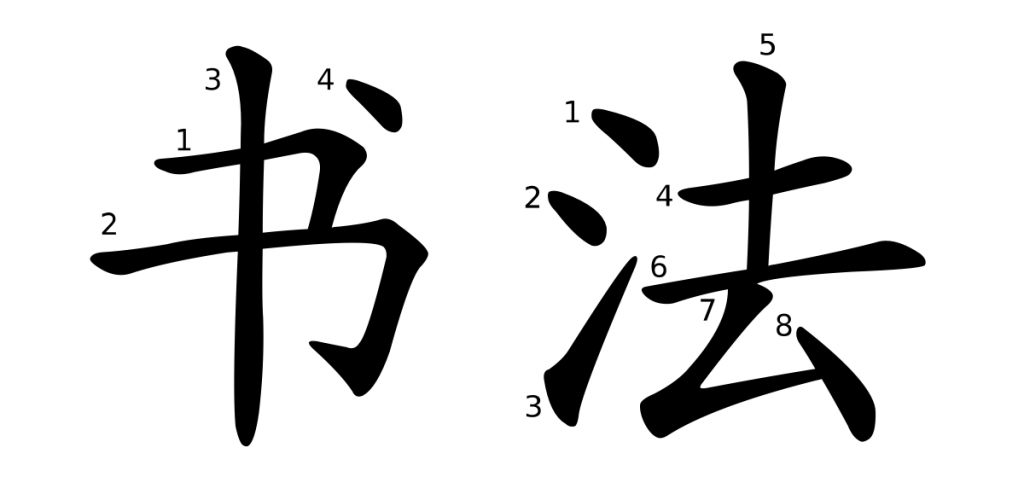
隨便/随便 [suíbiàn] IE Do as you please. 大家今天隨便吃,我請客!/大家今天随便吃,我请客!Everyone can eat whatever they want today, it’s on me!

suí: let (sb. do as he likes)
radical: 阝
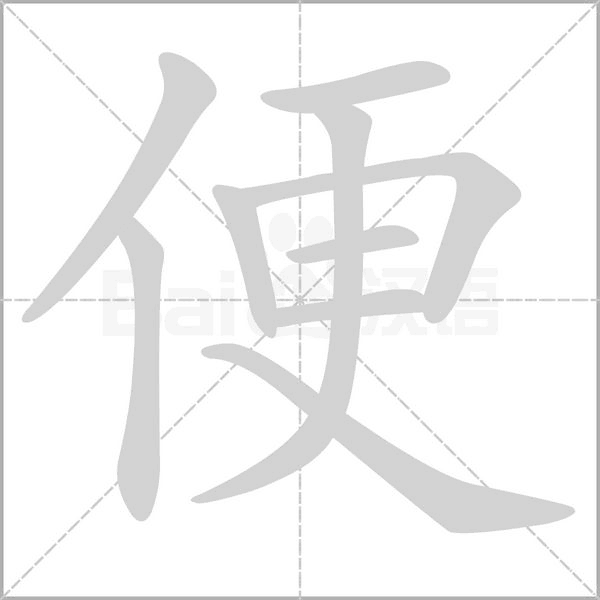
biàn: convenience; ease; convenient; handy
radical: 亻
Simplified character:
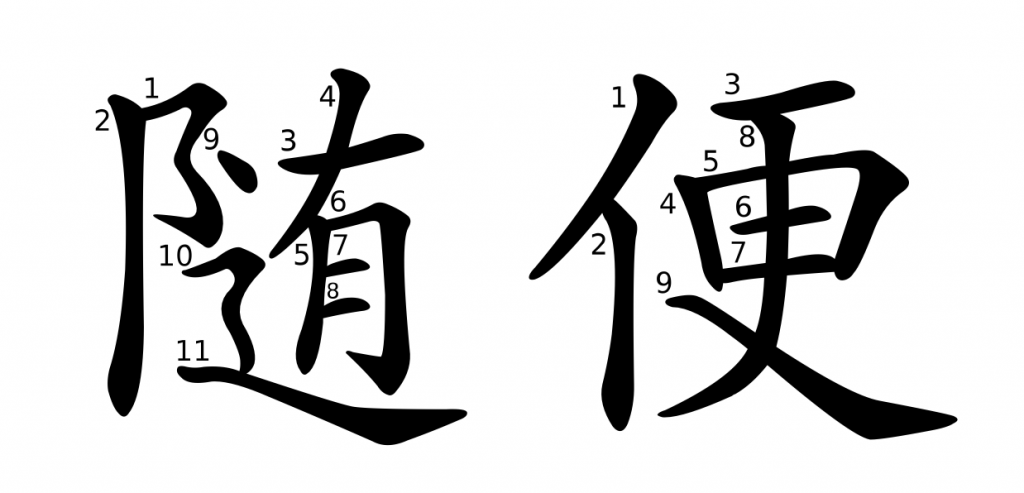
多才多藝/多才多艺 [duōcáiduōyì] IE versatile. 我哥哥多才多藝/我哥哥多才多艺。My older brother is very talented.
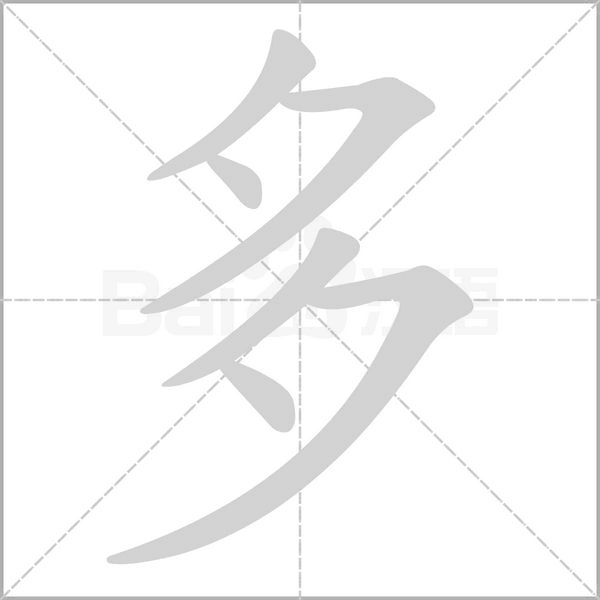
duō: many; much; exceed a number; a lot of
radical: 夕 (xī: sunset; evening)

cái: talent; ability; gift
radical: 一
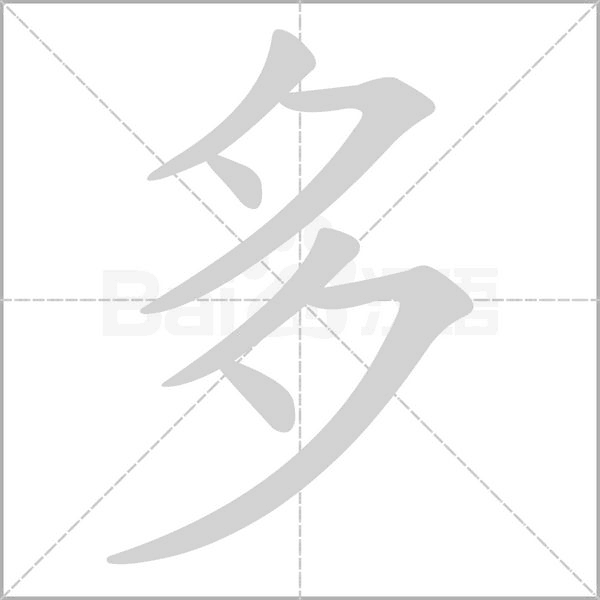
duō: many; much; exceed a number; a lot of
radical: 夕 (xī: sunset; evening)

yì: skill
radical: 艹
Simplified character:

美式 [měishì] N. American style. 我很喜歡看美式足球/我很喜欢看美式足球。I really enjoy watching American football.
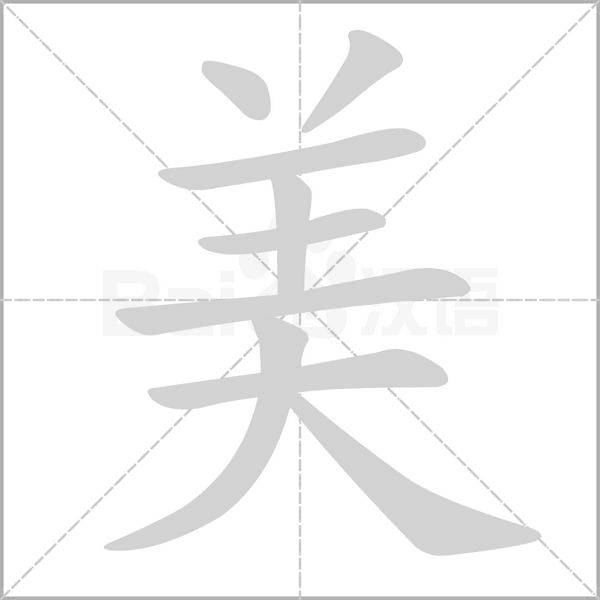
měi: beautiful
radical: 羊 (yáng; sheep)
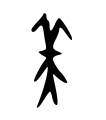
Chinese Studies Classroom: In oracle bone script, the character “美” resembles a person standing while wearing a headdress. Its original meaning refers to beauty or being attractive.
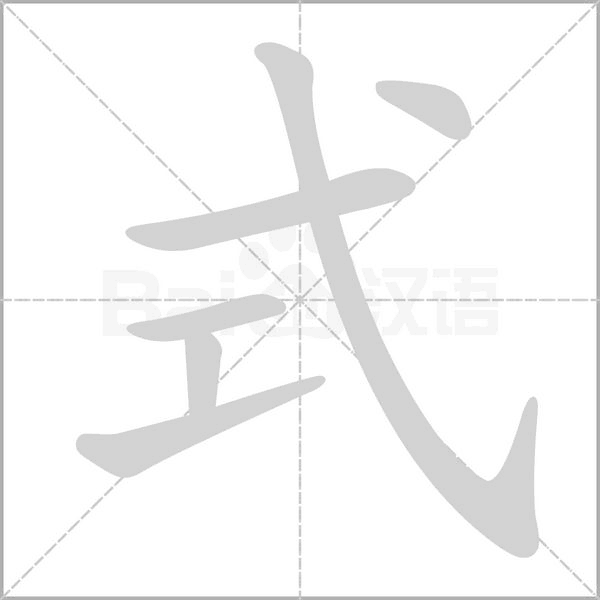
shì: type; style; pattern; form
radical: 弋、工
Both traditional and simplified characters are written as:
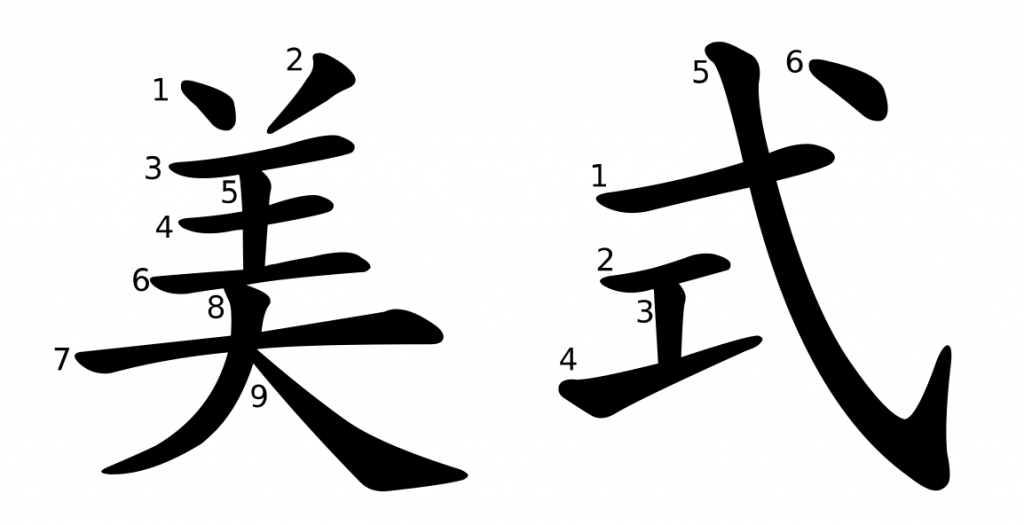
東方/东方 [dōngfāng] Eastern. 我很喜歡東方美食/我很喜欢东方美食。I really like Eastern cuisine.
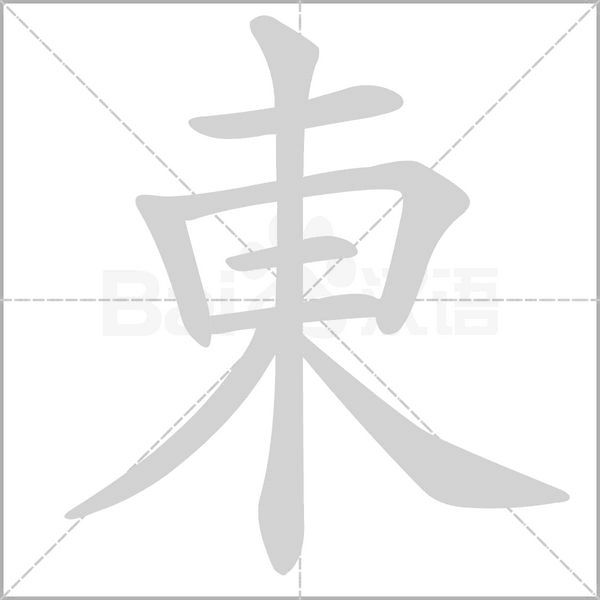
dōng: east
radical: 一

Chinese Studies Classroom: One interpretation of this character is that “東” looks like the sun (日) rising among trees (木), symbolizing the sun just rising. The direction where the sun rises is the east.

fāng: direction; side; party; place; region
radical: 方 (fāng; square)
Simplified character:
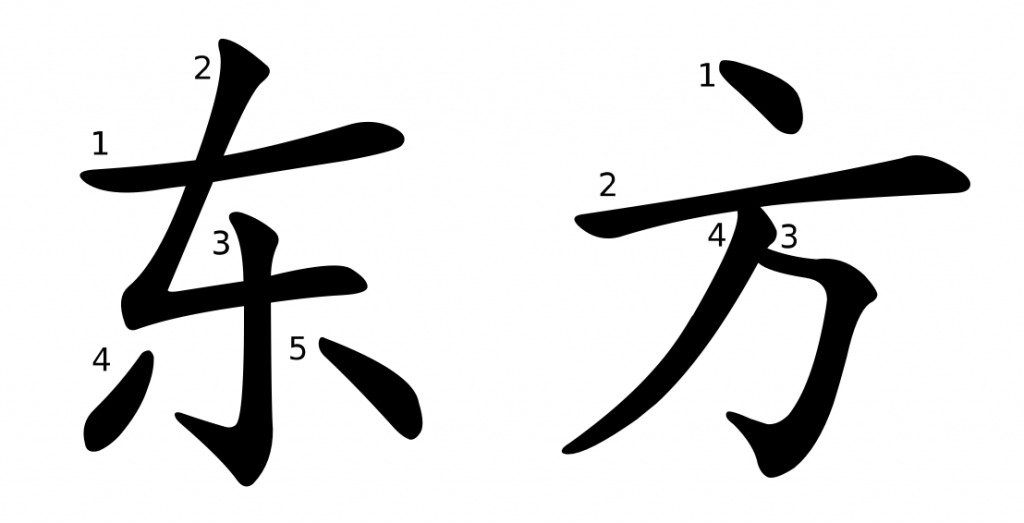
專業/专业 [zhuānyè] N. major. 我的專業是東亞研究/我的专业是东亚研究。My major is East Asian Studies.
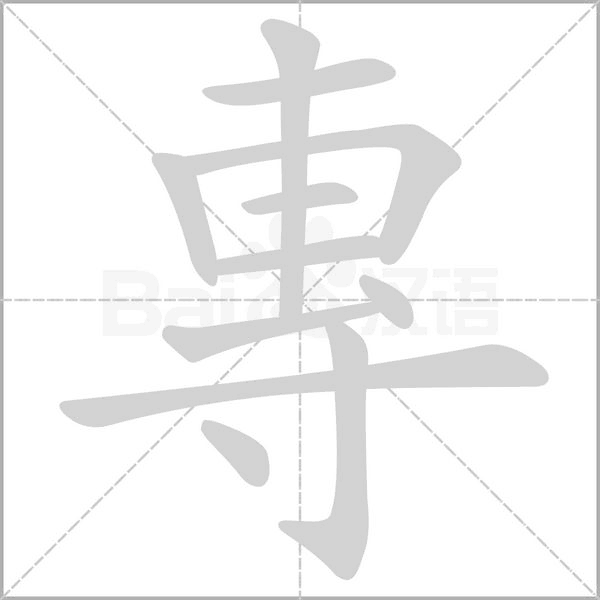
zhuān: concentrated; devoted; focused on one thing; monopolize; take possession alone
radical: 一
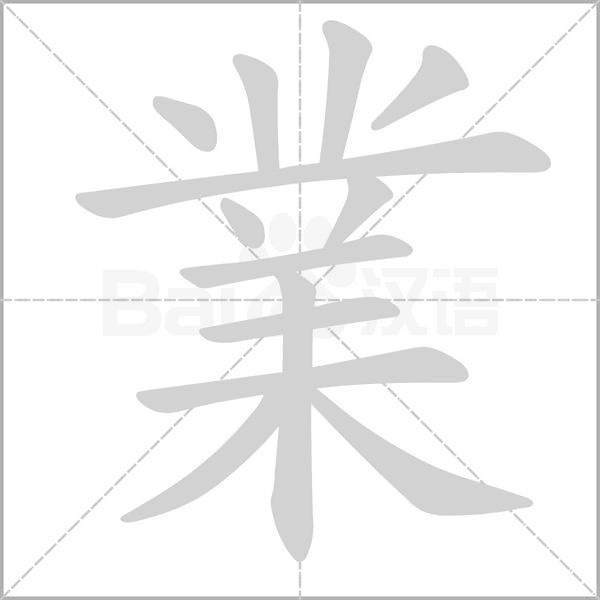
yè: course of study; schoolwork
radical: 业
Simplified character:
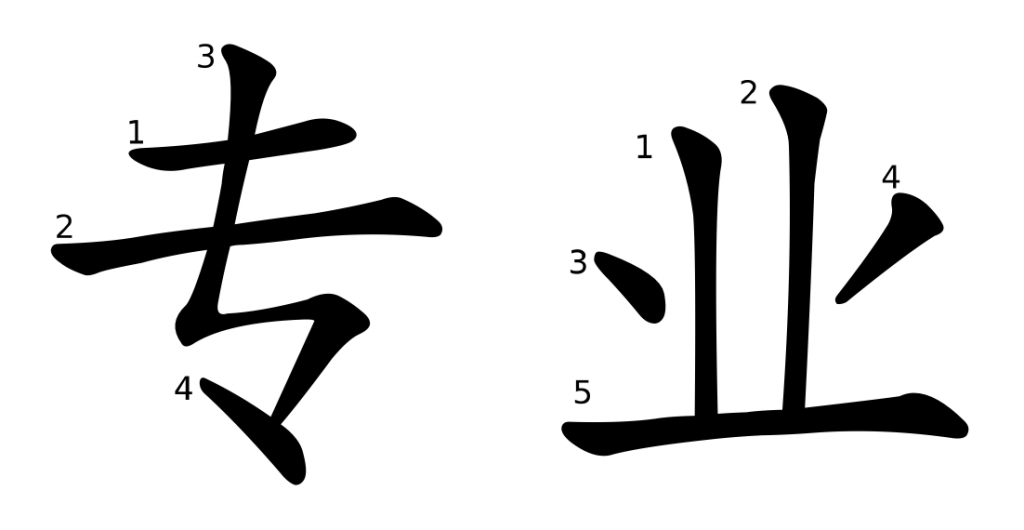
原因 [yuányīn] N. reason. 我學中文的原因是我覺得漢字很美/我学中文的原因是我觉得汉字很美。The reason I study Chinese is that I think Chinese characters are very beautiful.
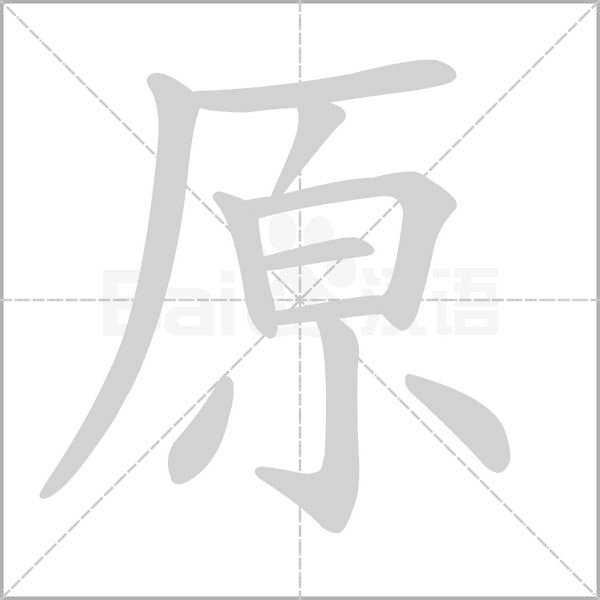
yuán: primary; original; former; unprocessed; raw
radical: 厂

yīn: cause; reason
radical: 口
Both traditional and simplified characters are written as:
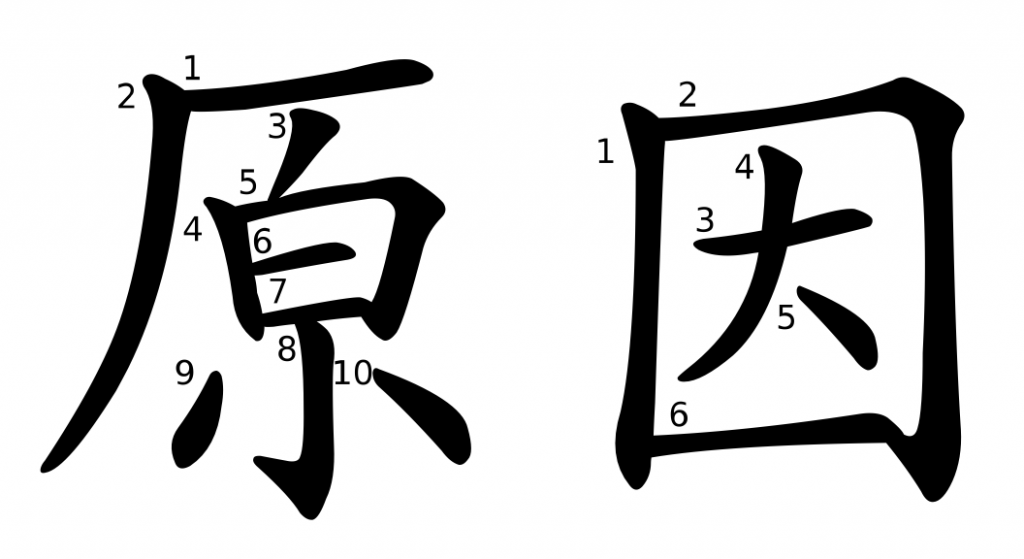
主修 [zhǔxiū] V. to major in. 我主修東亞藝術/我主修东亚艺术。
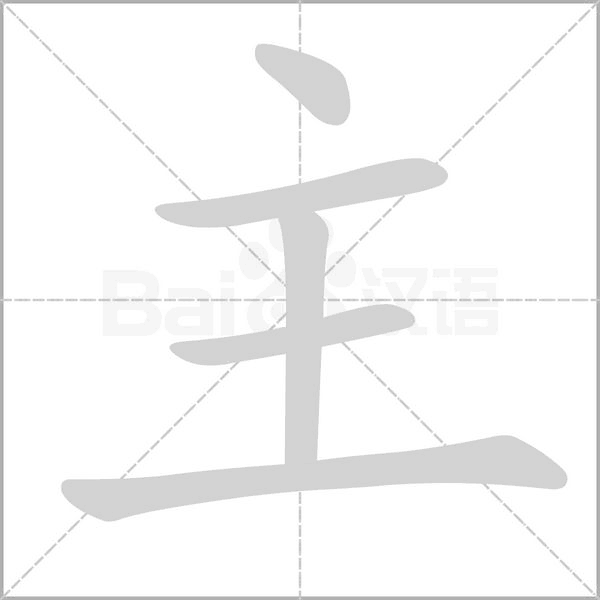
zhǔ: main; principal; primary
radical:
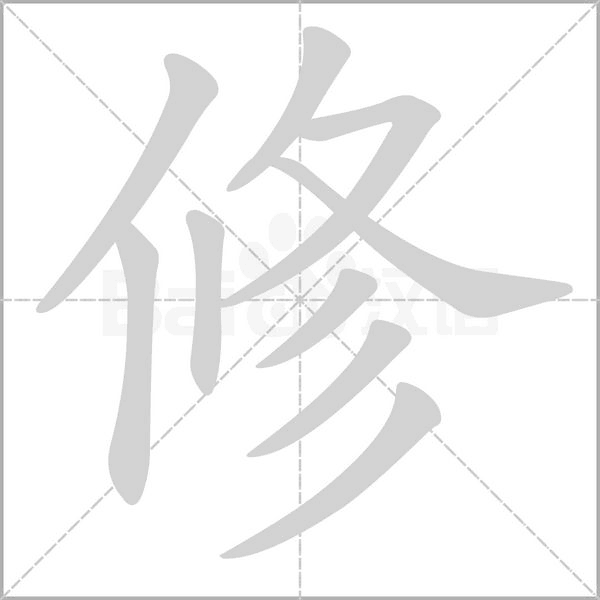
xiū: repair; cultivate; build
radical: 人 (person)
Both traditional and simplified characters are written as:
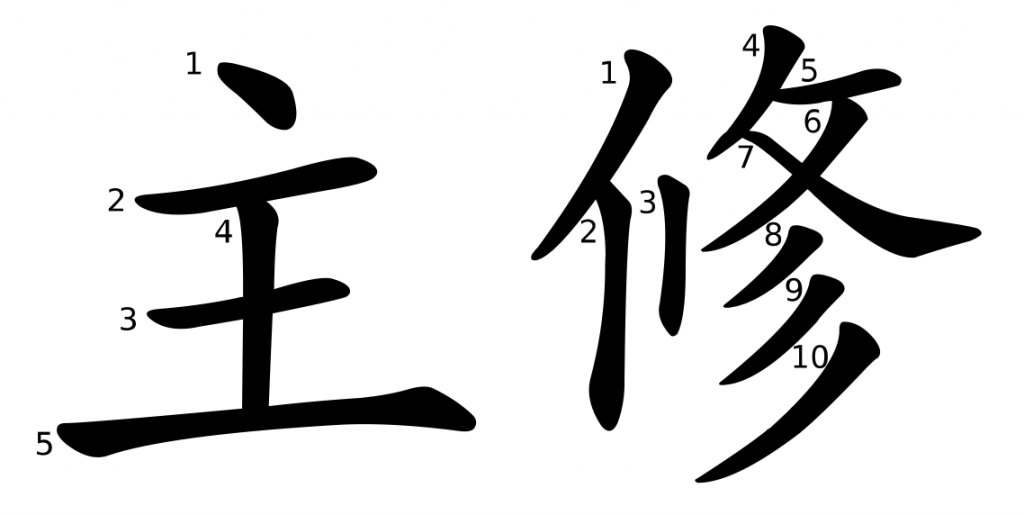
彈鋼琴/弹钢琴 [tán gāngqín] V-O. play the piano. 我妹妹彈鋼琴彈得很好/我妹妹弹钢琴弹得很好。My younger sister plays the piano very well.
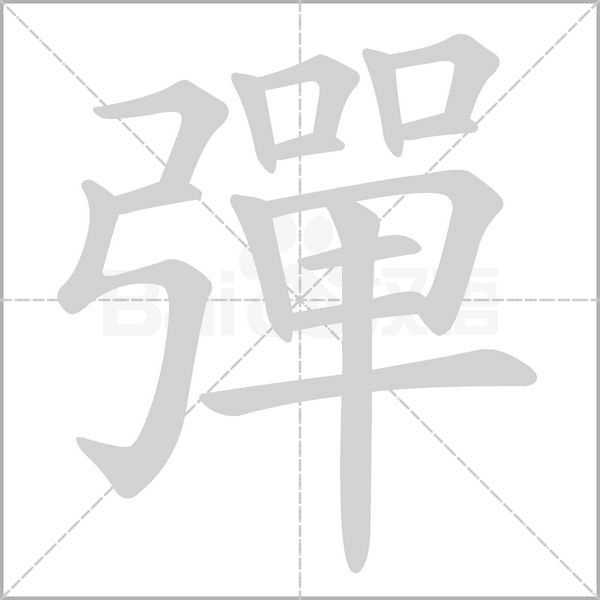
tán: play; pluck; flick; leap
radical: 弓 (gōng: bow)
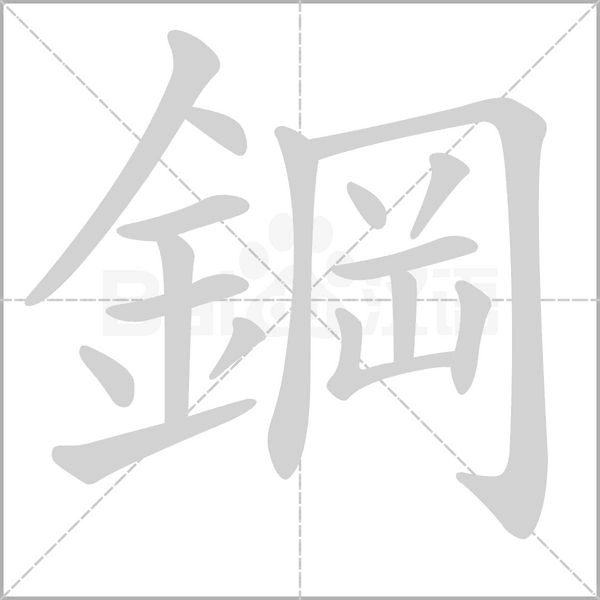
gāng: steel
radical: 金 (jīn: metal)
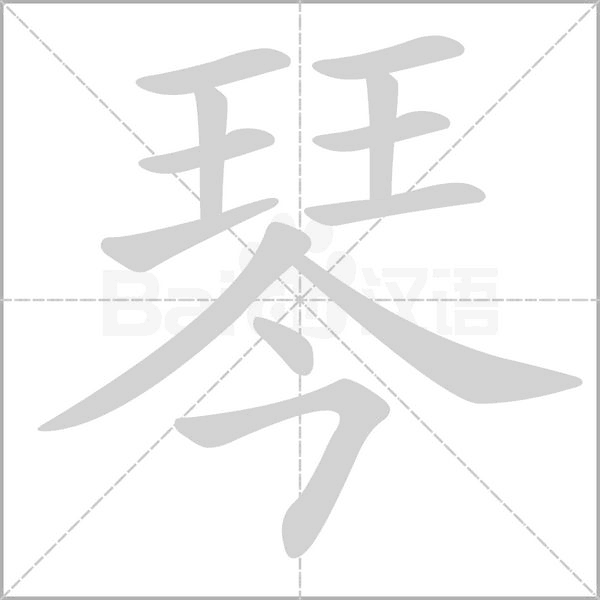
qín: a general name for certain musical instrument
radical: 王
Simplified character:
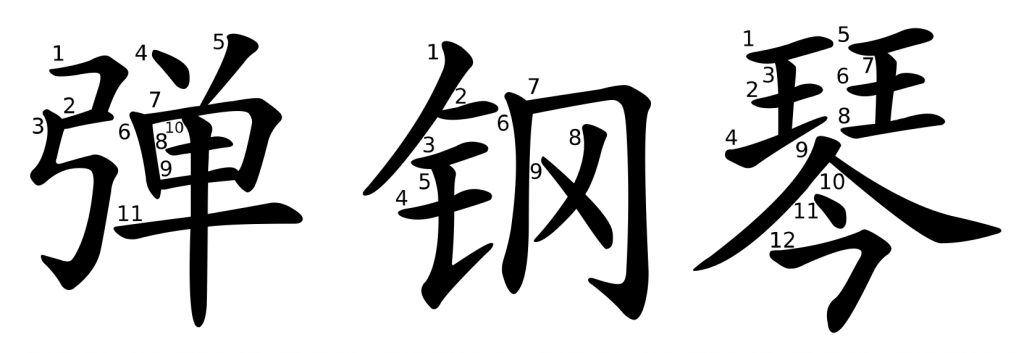
兄弟 [xiōngdì] N. brothers. 你有沒有兄弟姐妹/你有没有兄弟姐妹?Do you have any siblings?

xiōng: elder brother; a courteous form of address between men
radical: 口、儿
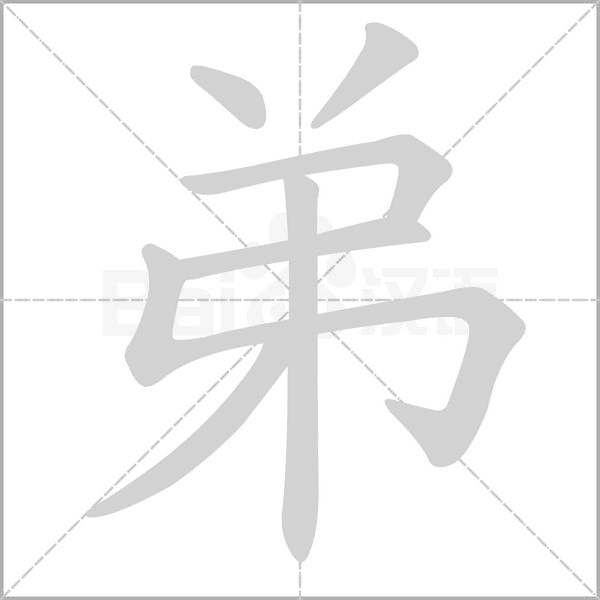
dì: younger brother;
radical: 弓
Both traditional and simplified characters are written as:
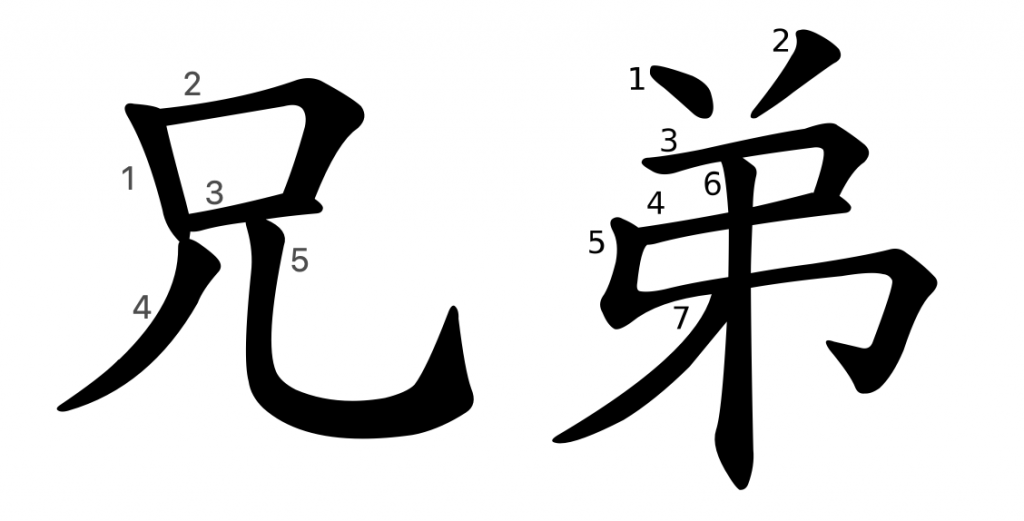
圍棋/围棋 [wéiqí] N. Go (the board game). 你下圍棋下得怎麼樣/你下围棋下得怎么样?How well do you play Go?
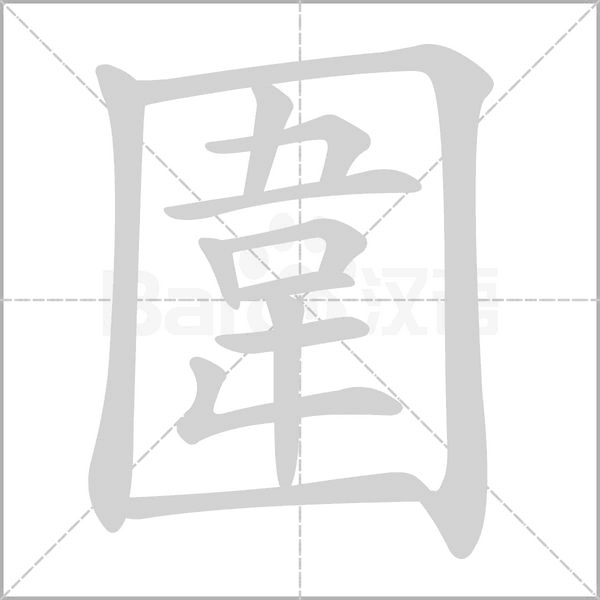
wéi: enclose; wrap
radical: 口
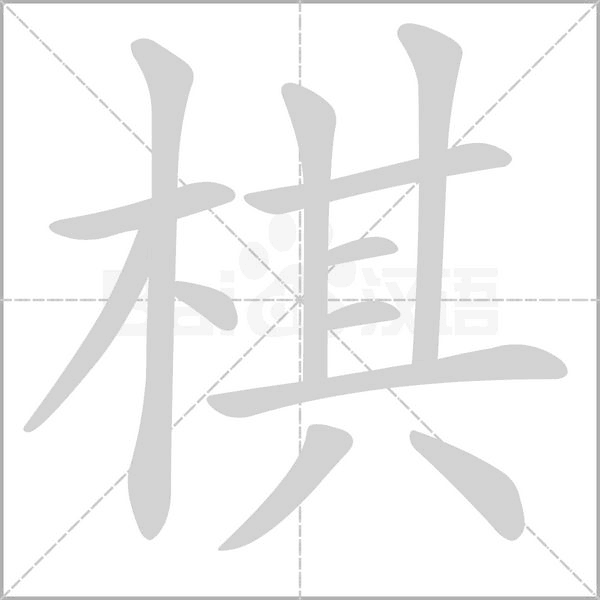
qí: chess or any board game
radical: 木 (wood)
Simplified character:
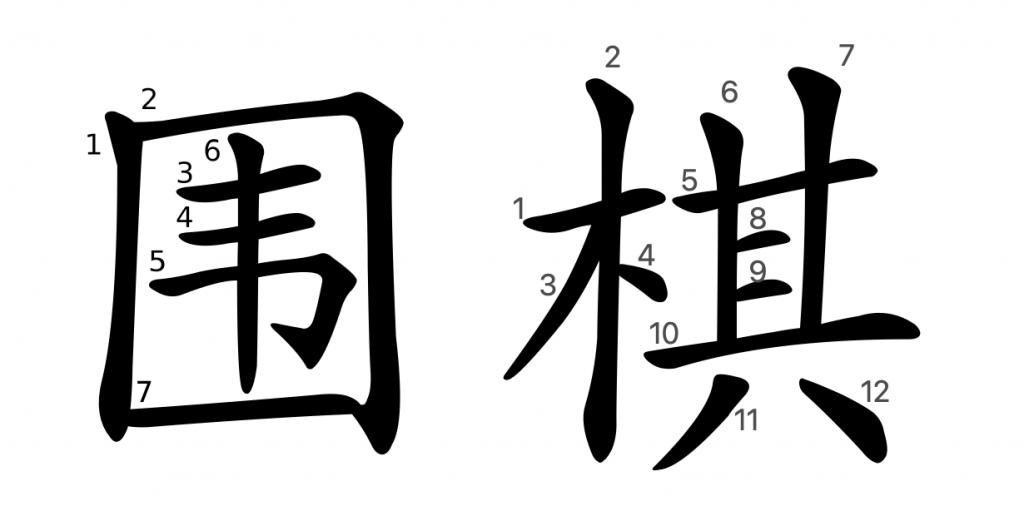
開始/开始 [kāishǐ] V. to start. 你是什麼時候開始學中文的/你是什么时候开始学中文的?When did you start learning Chinese?
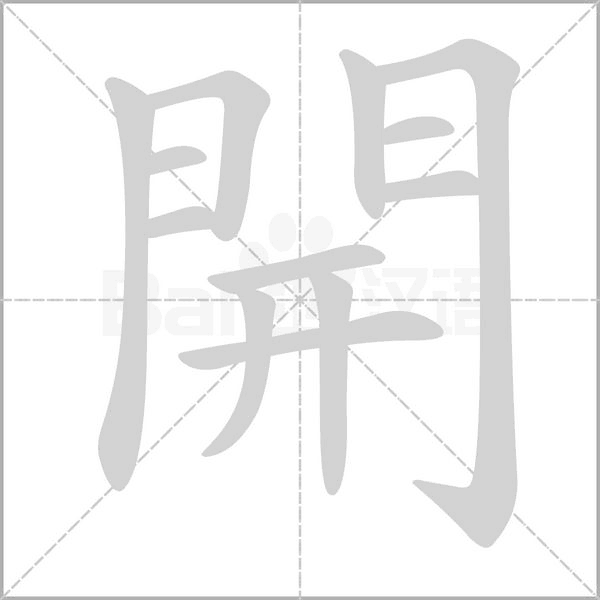
kāi: open; turn on; open up; open out
radical: 門 (mén: door)
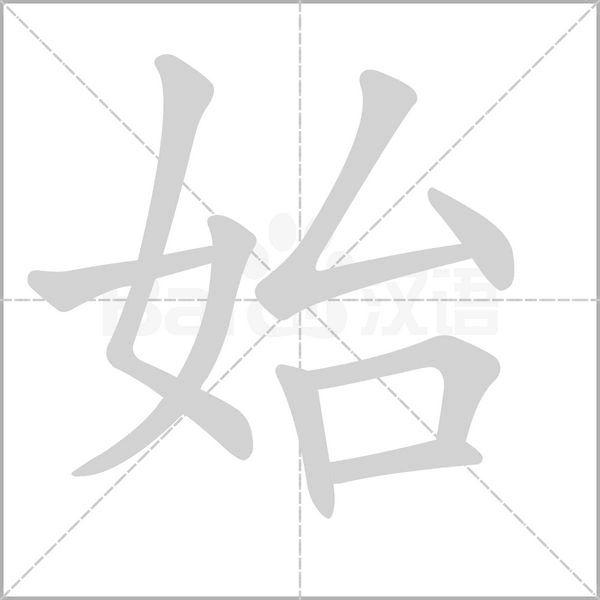
shǐ: start; begin
radical: 女
Simplified character:
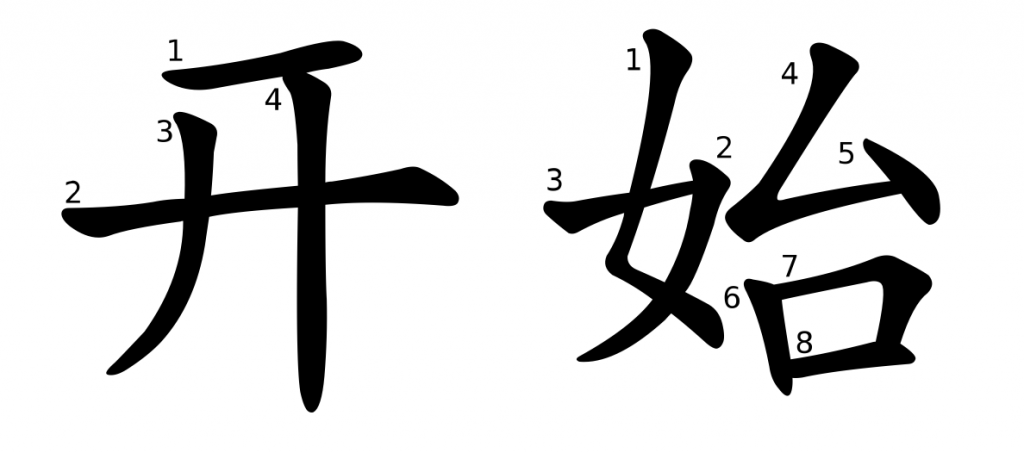
不敢當/不敢当 [bùgǎndāng] IE. I am flattered.
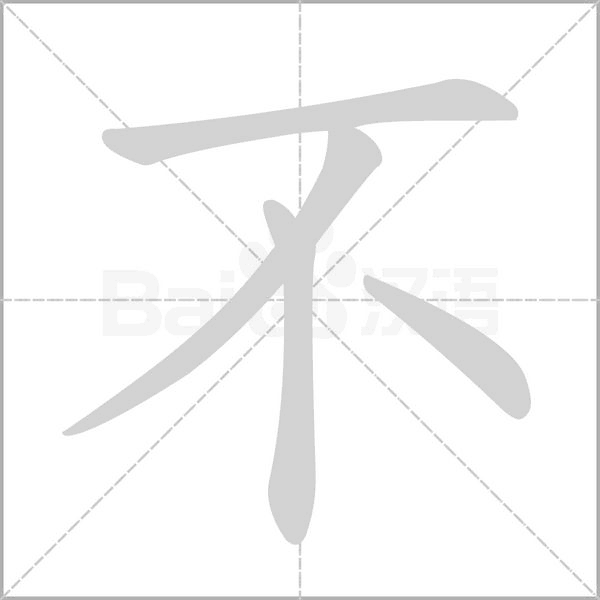
bù: no; not; don’t
radical: 不
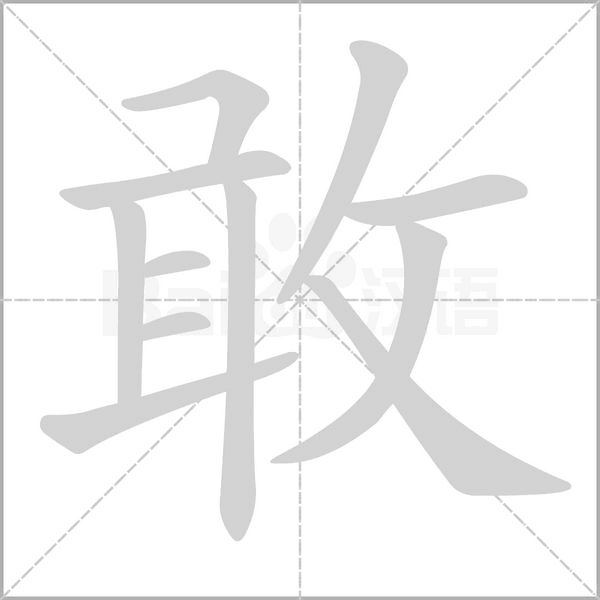
gǎn: dare; have the confidence to; be certain; make bold
radical: 攵(pū: Characters containing the radical “攴” or “攵” are often related to hand actions such as hitting, knocking, or striking.)
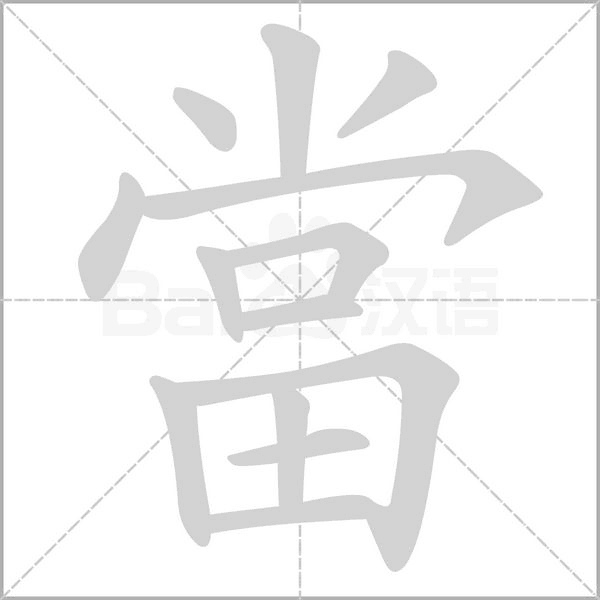
dāng: bear; accept; deserve
radical: 田/ 彐
Simplified character:
